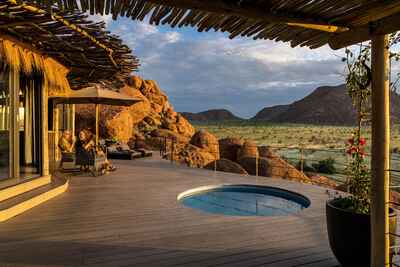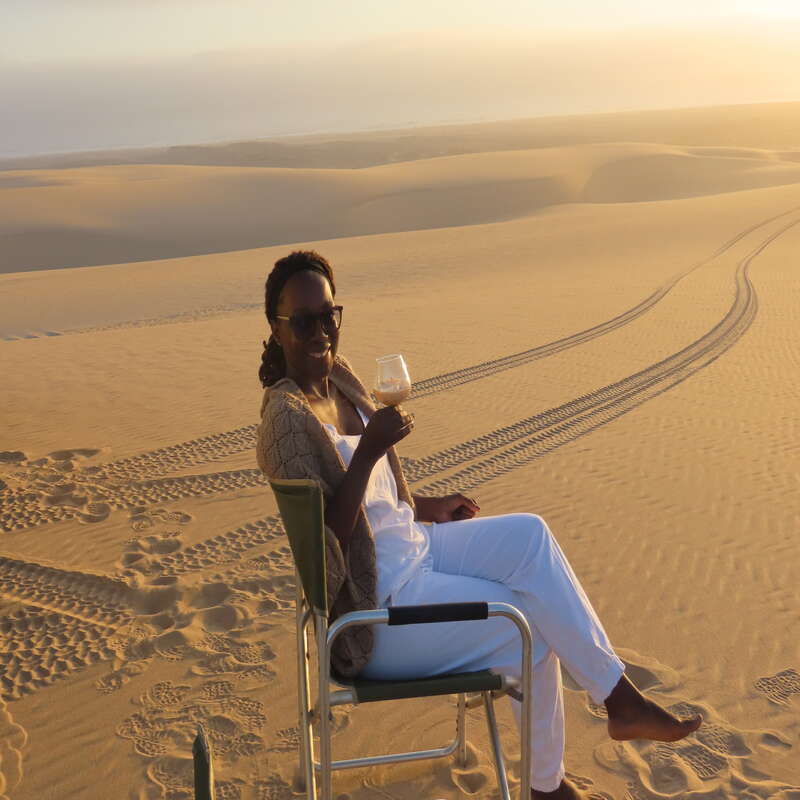About Camp Kipwe
Friendly, and decidedly quirky, Camp Kipwe combines superb views across the plains with easy access to the attractions of Damaraland.
With their rounded walls and curved roofs, the rooms or epondoks at Camp Kipwe are almost unique among Namibian lodges.
Slotted into an outcrop of boulders that are typical of Damaraland, these igloo-like rooms are designed to mitigate the extremes of Namibia's climate – albeit with a little help from air conditioning.
Rush mats line the floors, tree trunks create bedside tables, and rustic poles frame the verandas – which face west with seemingly endless views across the plains. In a camp that feels at one with the surroundings, it's fitting that the rocks sometimes butt into the open-air bathrooms as if they belonged – here providing privacy for the toilet, there a backdrop for the shower.
A tantalising rock pool benefits from the boulders, which shelter it from the harsh midday sun, while towards evening, another kopje does service as a sundowner spot. Climb up here and watch – drink in hand – as the African sun dips below the horizon.
Such is the outdoor appeal of Kipwe, it can be hard to tear yourself in for dinner, but the food – including locally grown vegetables – is worth it. And you can always finish the day around the firepit, with the stars sparkling overhead.
Our view
Camp Kipwe is a relaxed, good-value and attractive lodge set among the boulders of Damaraland with beautiful scenery. It offers interesting excursions to Twyfelfontein's remarkable cultural sights, as well as adventurous trips in search of Namibia's roaming giants, the desert-adapted elephant.
Accommodation
9 bungalows, 2 suites
Children
Best for ages 5+
Open
All year
Activities

4WD Safari

Birdwatching

Cultural excursion

Guided walking safari

Private activities
Traveller reviews of Camp Kipwe
124 real, un-edited reviews from Expert Africa's travellers.
Arrived 10 May 2025, 1 nights
"Camp Kipwe review"
Overall rating: Good
Arrived 10 Sep 2024, 2 nights
"Camp Kipwe review"
Overall rating: Excellent
Arrived 9 Sep 2024, 2 nights
"Camp Kipwe review"
Overall rating: Excellent
Arrived 9 Sep 2024, 2 nights
"Camp Kipwe review"
Overall rating: Excellent
Arrived 19 Sep 2024, 2 nights
"And then there was Kipwe!"
Overall rating: Excellent
Arrived 22 Aug 2024, 2 nights
"Camp Kipwe review"
Overall rating: Excellent
Arrived 20 Aug 2024, 2 nights
"Camp Kipwe review"
Overall rating: Excellent
Arrived 24 May 2024, 2 nights
"Camp Kipwe review"
Overall rating: Excellent
Arrived 30 May 2024, 1 nights
"First Class"
Overall rating: Excellent
Arrived 8 Mar 2024, 2 nights
"Camp Kipwe review"
Overall rating: Excellent
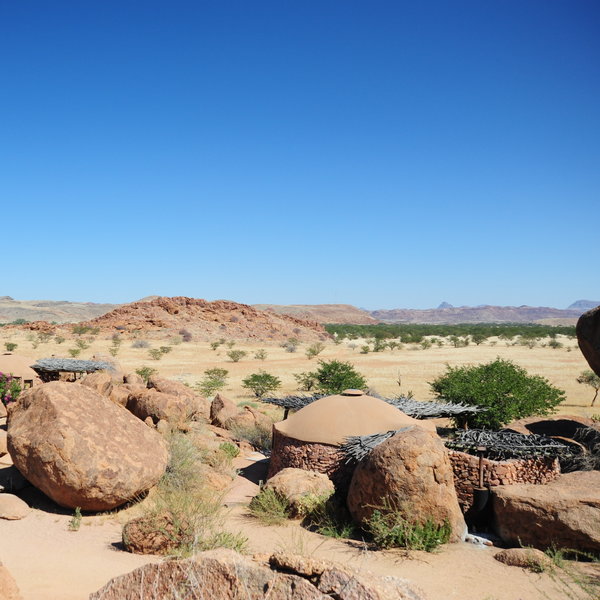
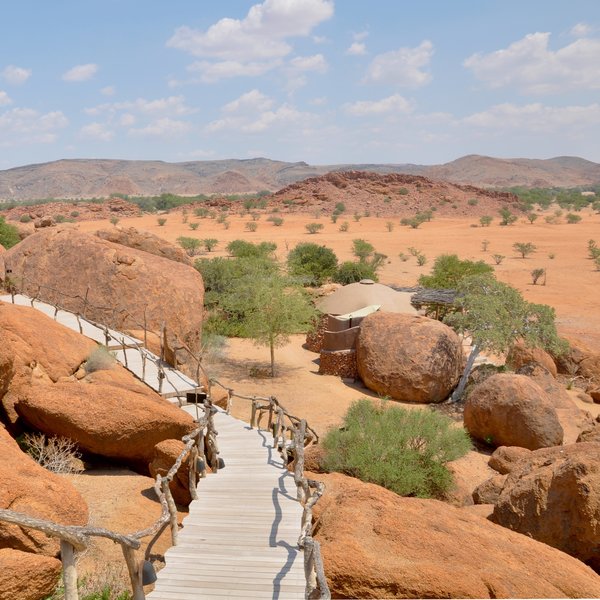
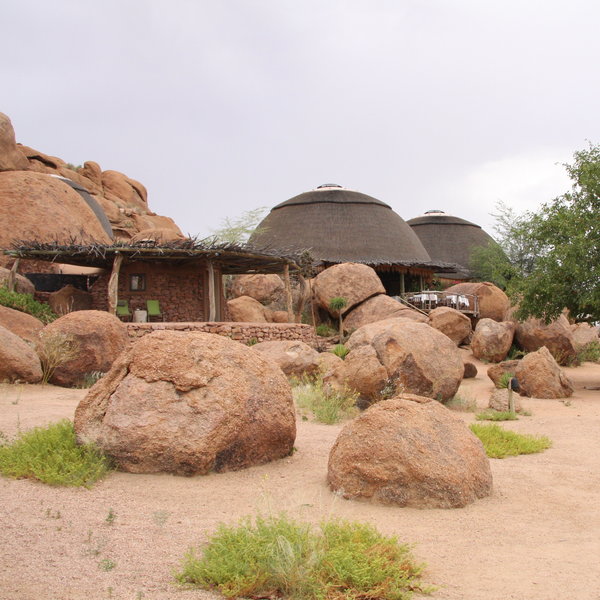
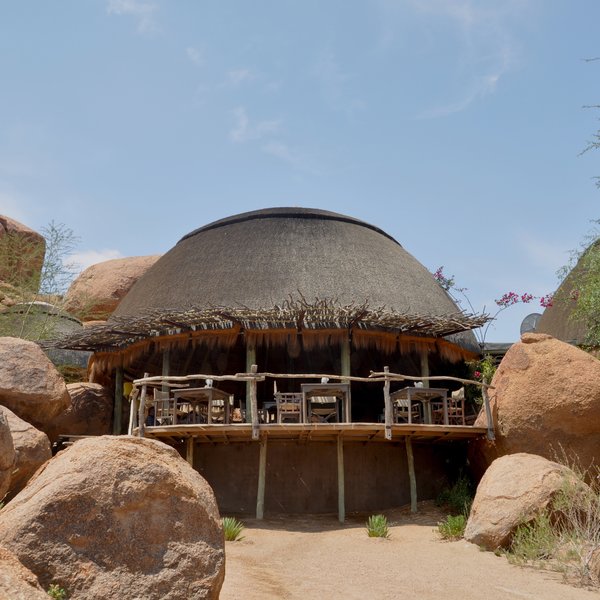
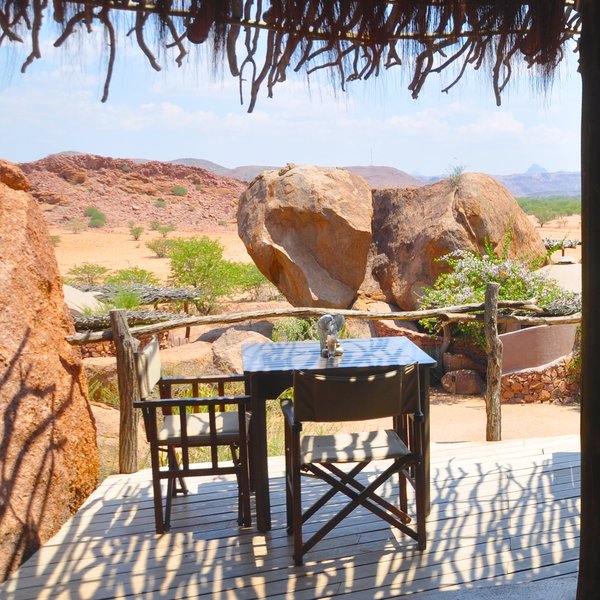
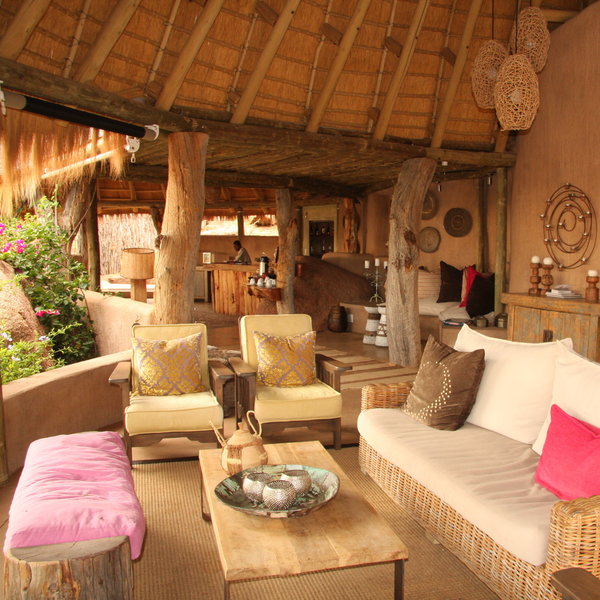
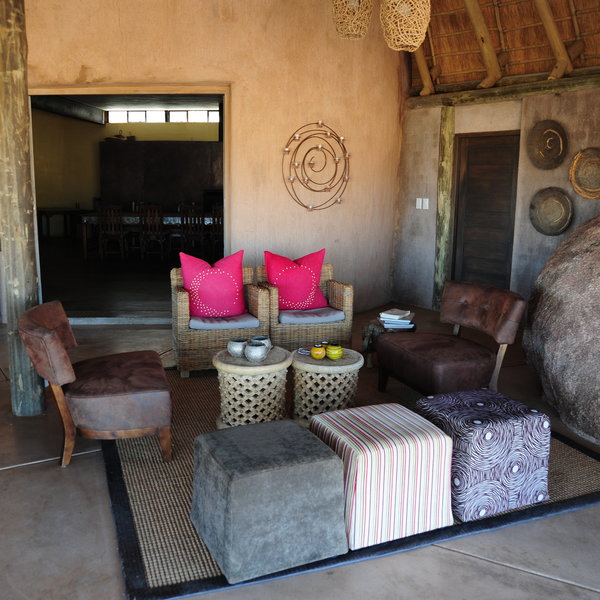
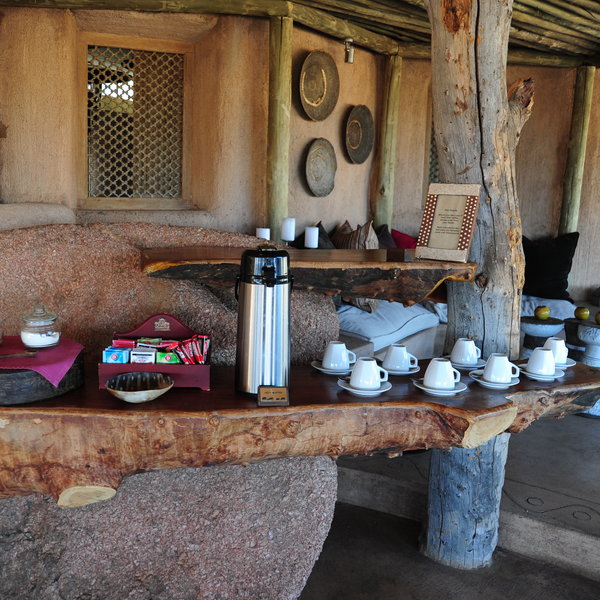
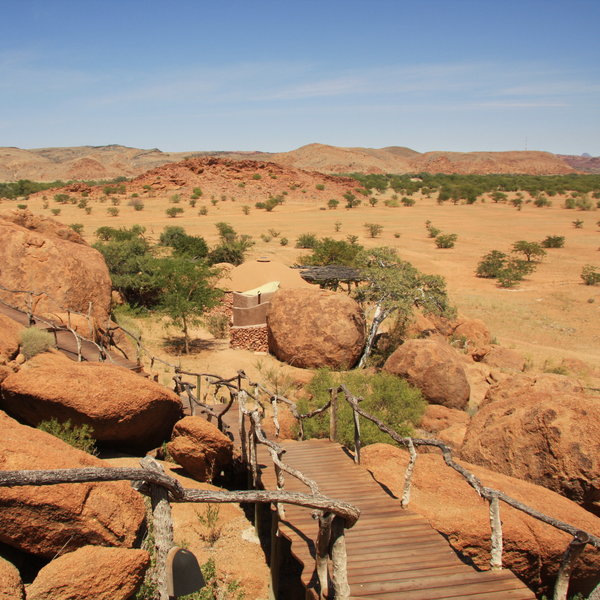
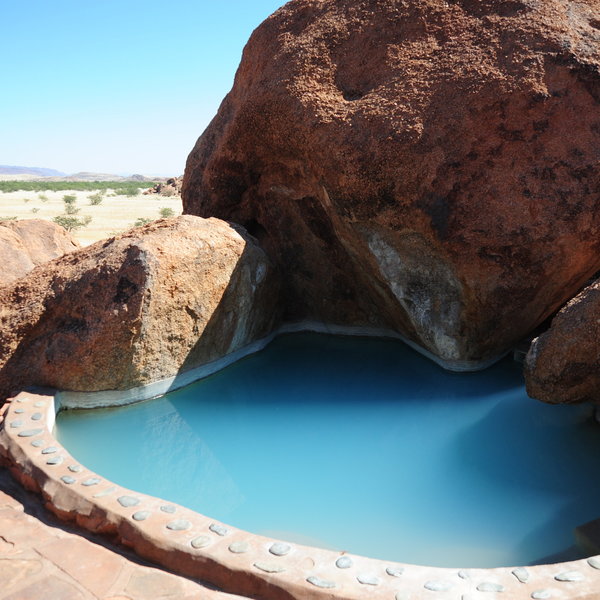
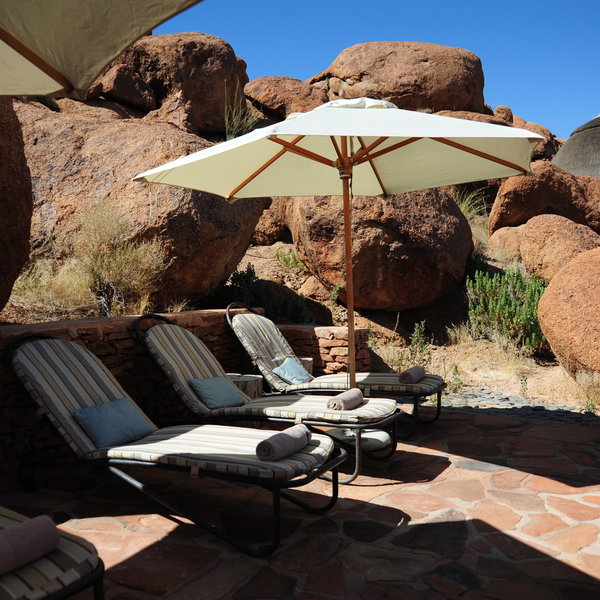
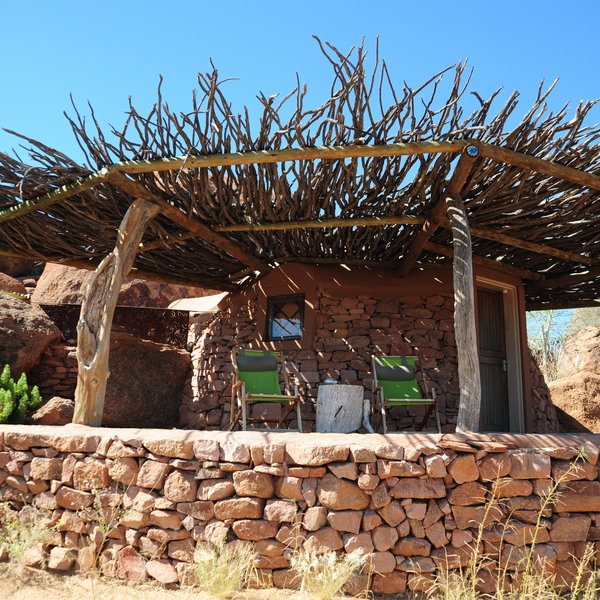
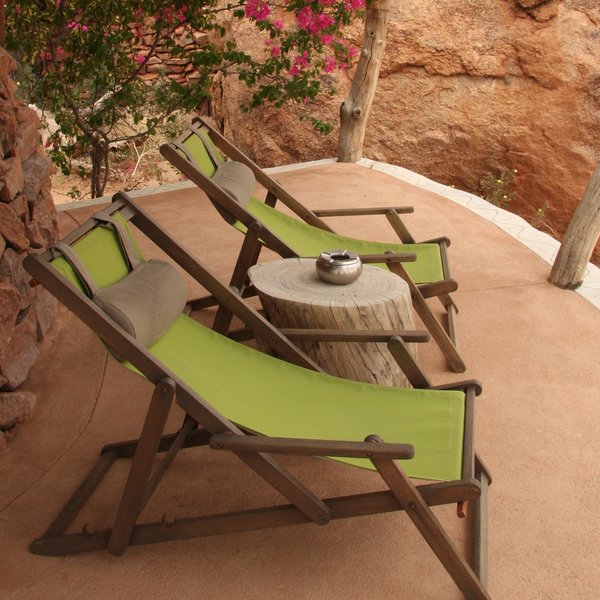
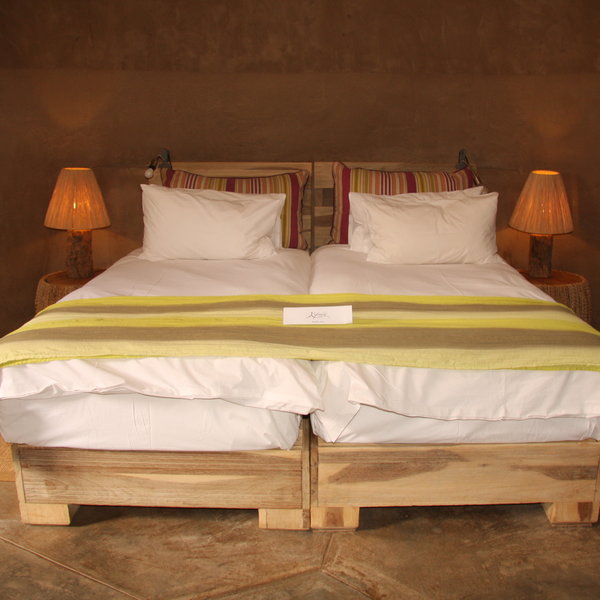
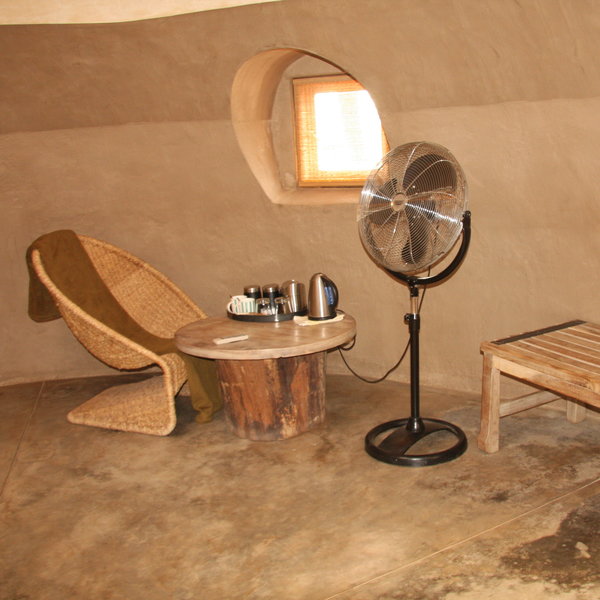
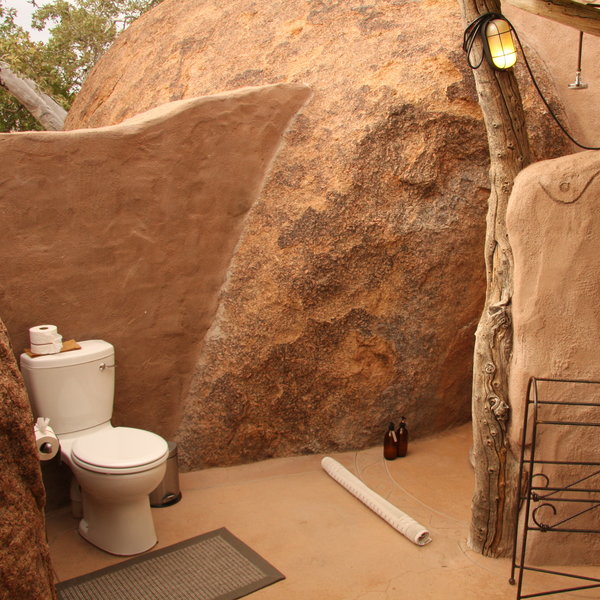
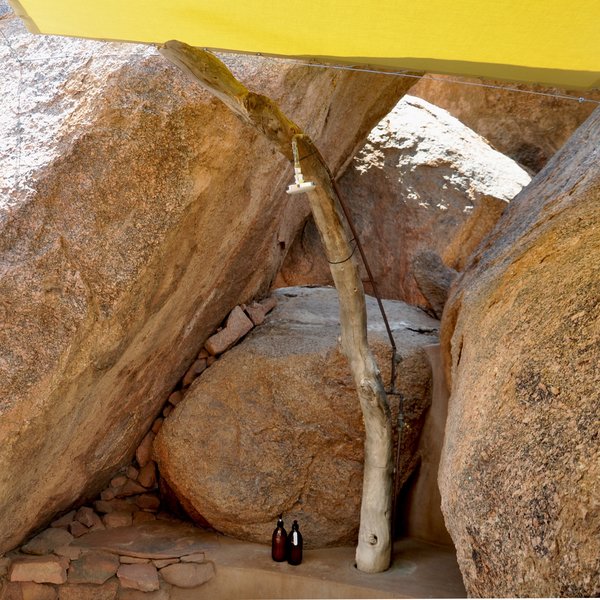
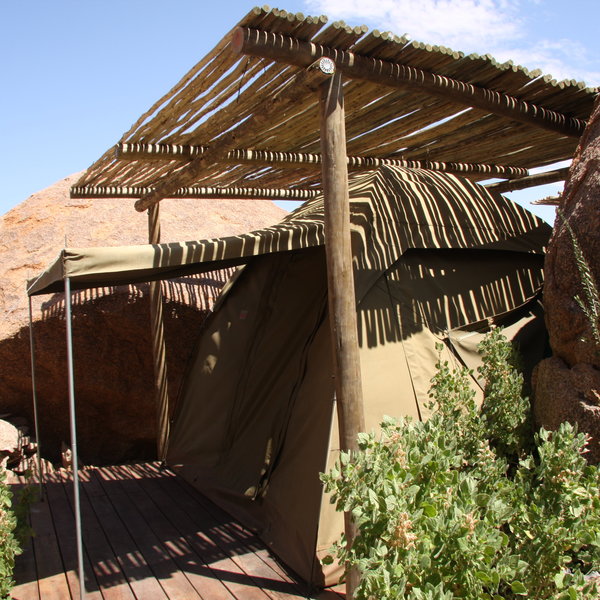
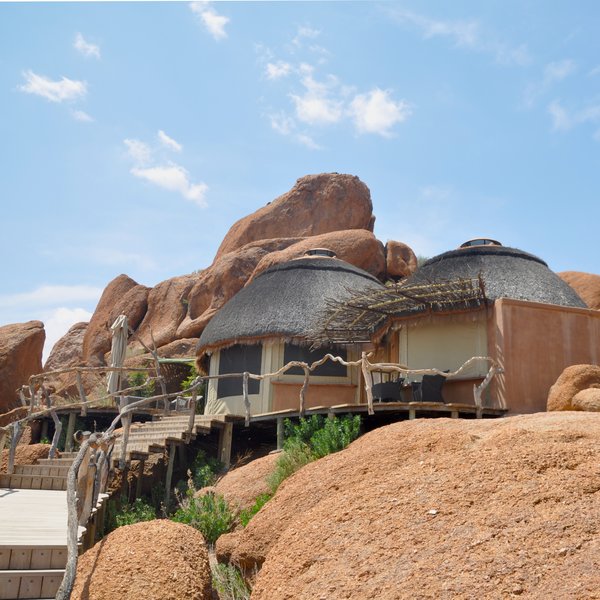
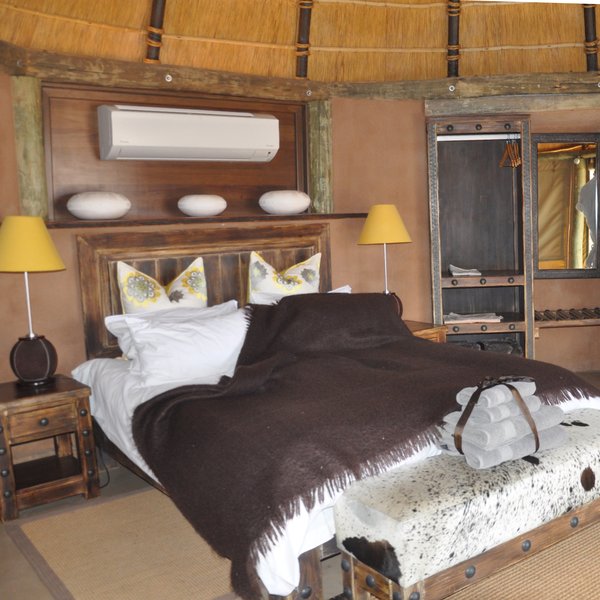
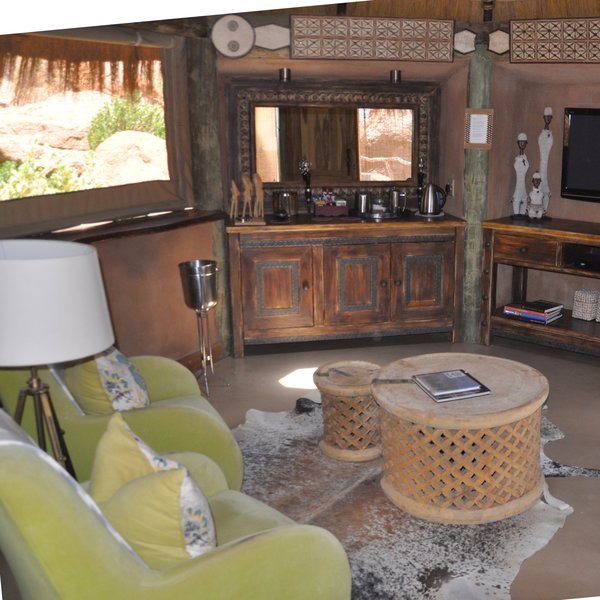
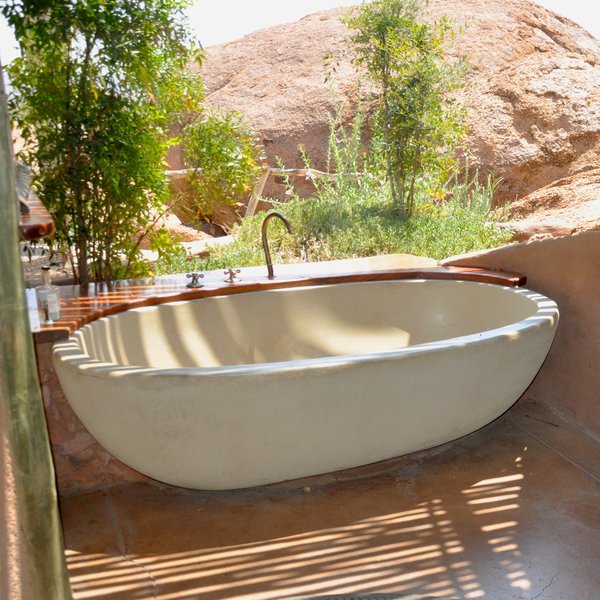
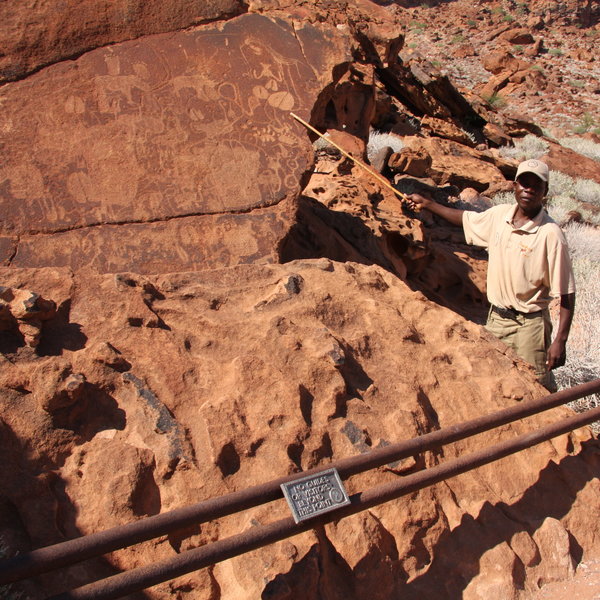
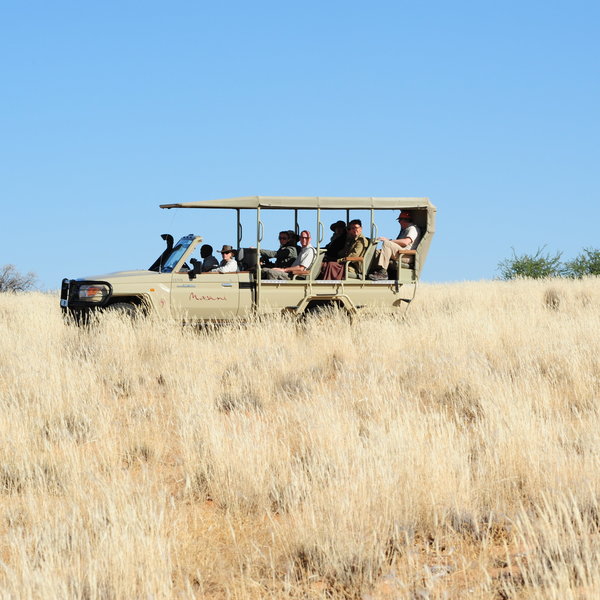
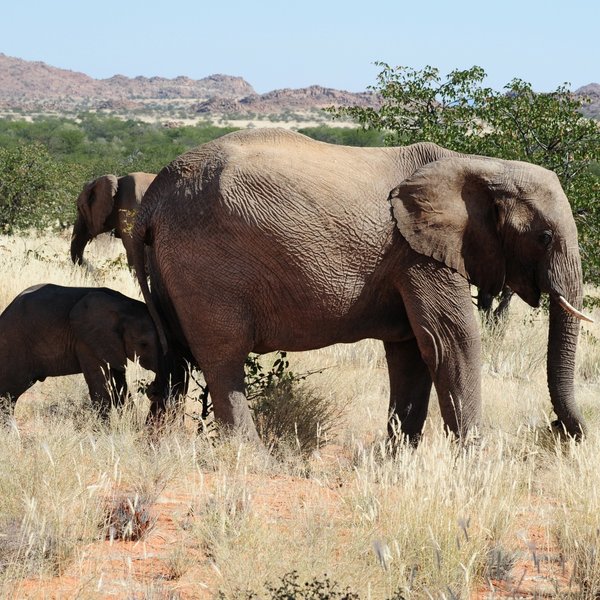
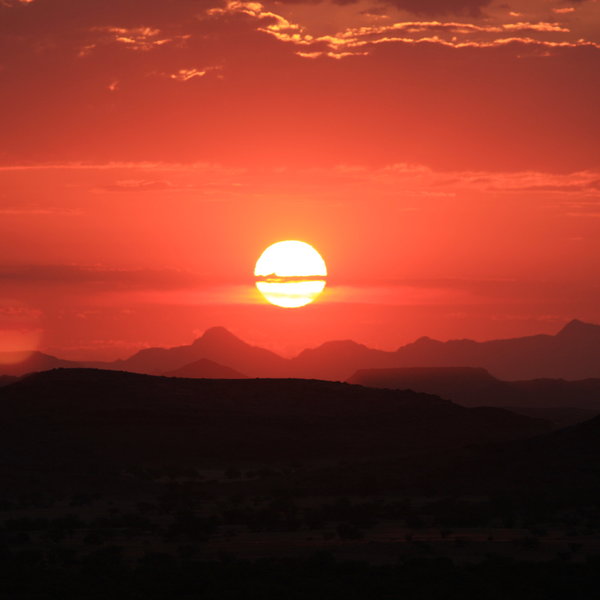
Expert Africa's gallery
When we travel we take lots of photos ourselves to give you a real and un-edited view of the safaris. See our 40 pictures of Camp Kipwe to get the candid view.
View gallerySafaris visiting Camp Kipwe
Just ideas, we'll always tailor-make a trip for you
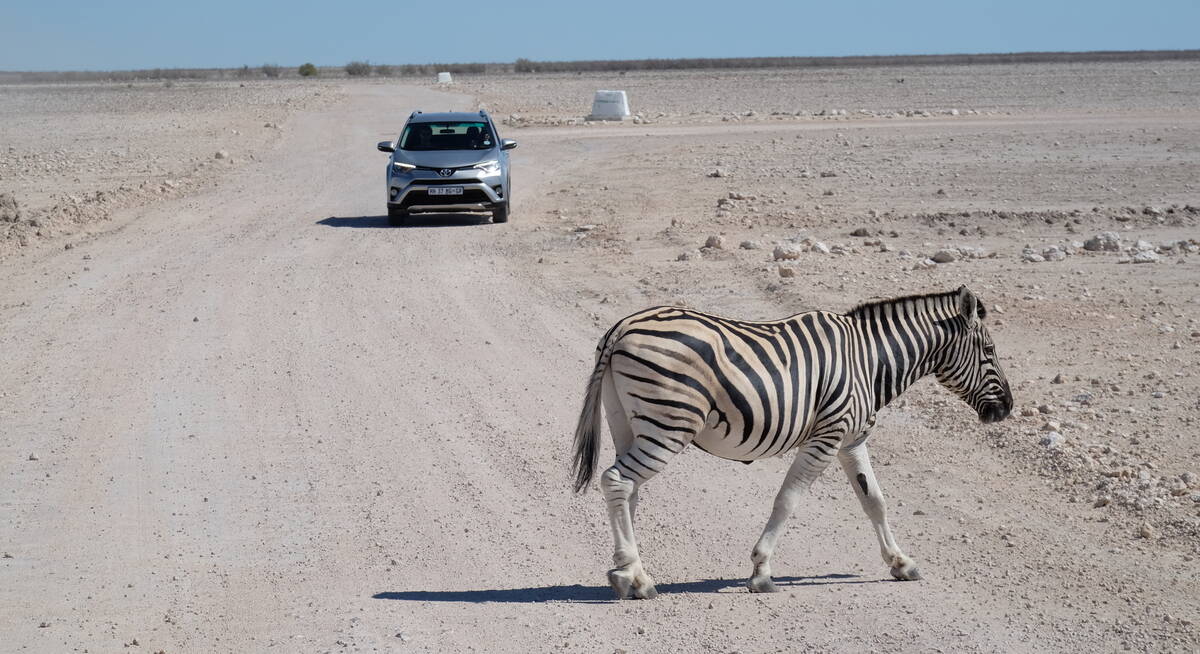
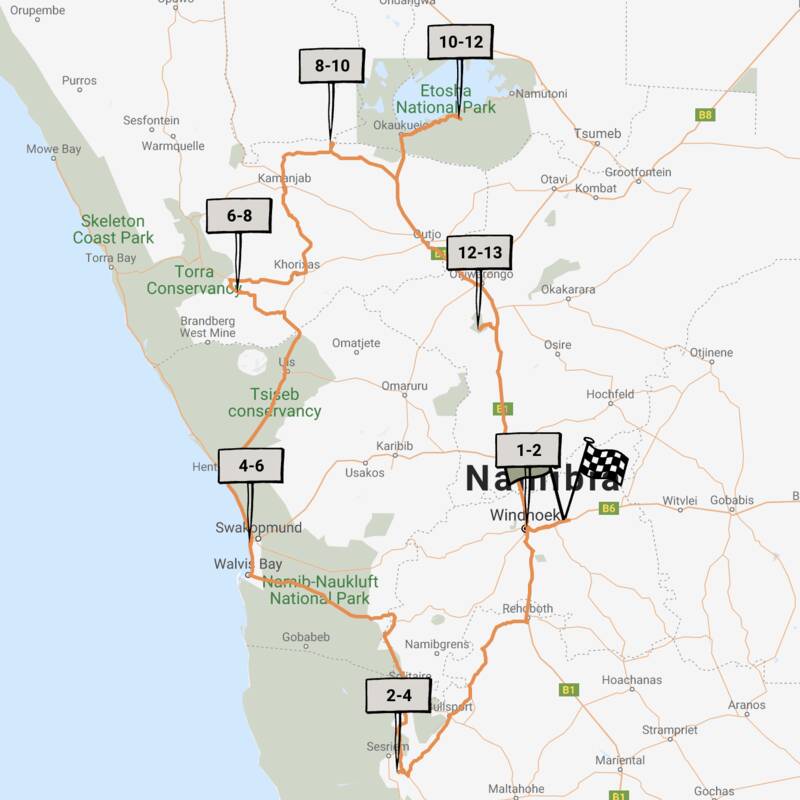
Namaqua Chameleon Self-drive
12 days • 7 locations • 1 country
WINDHOEK AIRPORT TO WINDHOEK AIRPORT
A classic 12-night self-drive adventure around the highlights of eastern and northern Namibia taking in Sossusvlei, Swakopmund, Damaraland, Etosha and a final stop at Okonjima. Comfortable lodges and great value.
Visiting Okonjima, Etosha and 4 other areas
US$4,190 - US$5,300 per person
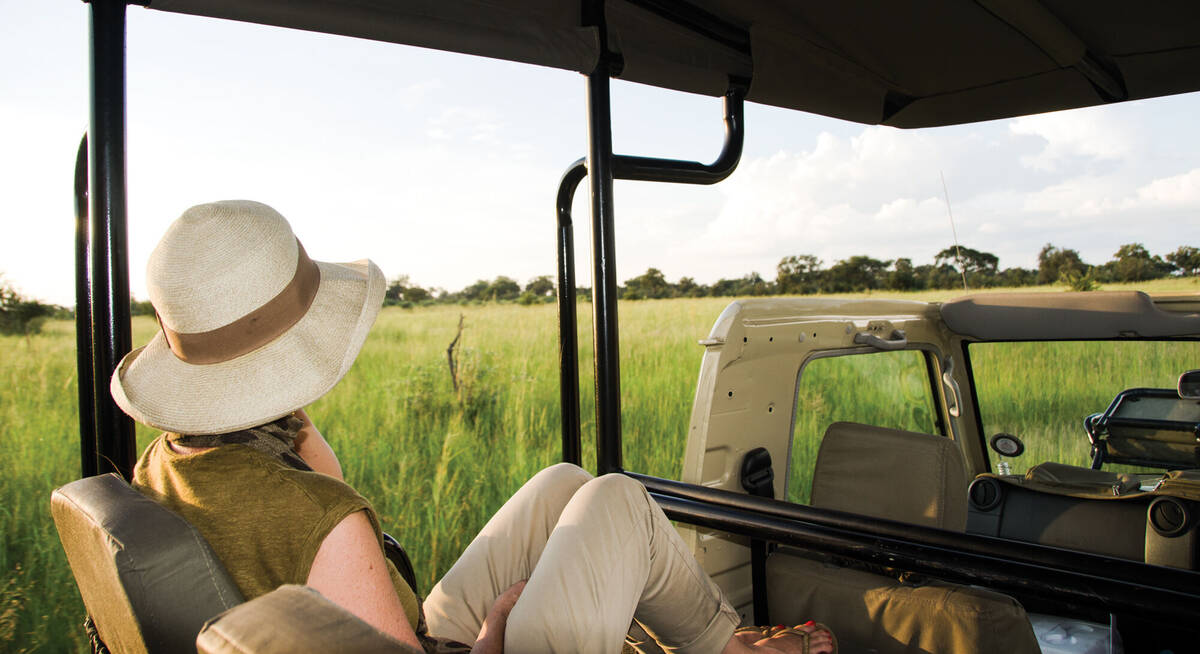
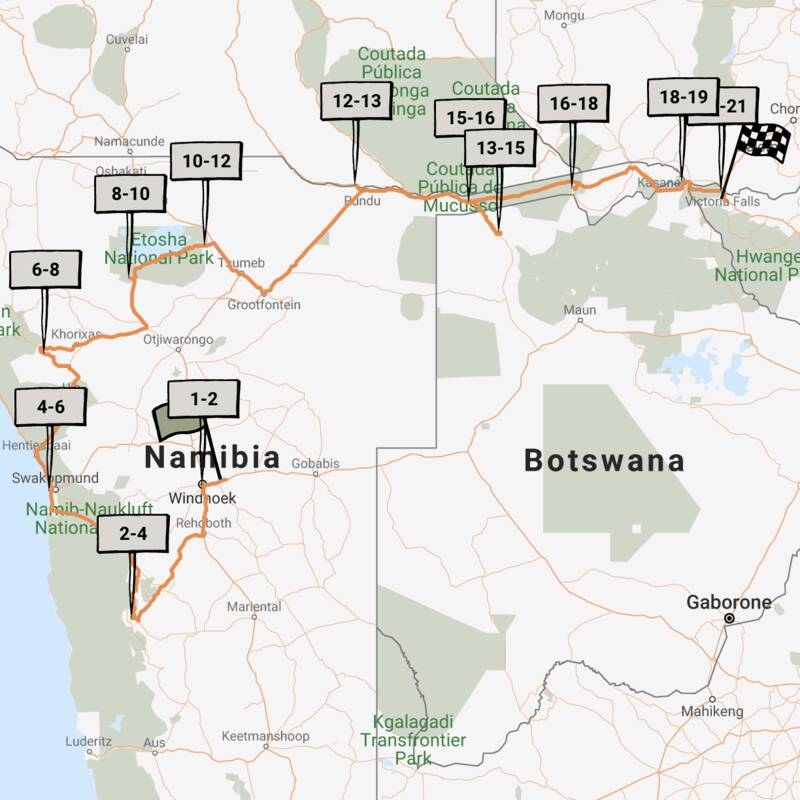
Rock Hare Self-drive Safari
20 days • 12 locations • 3 country
WINDHOEK AIRPORT TO VICTORIA FALLS AIRPORT
An in-depth look at Namibia from the Namib Desert to the Caprivi, with additional stops in Botswana and Victoria Falls. This three-week adventure includes an unrivalled mix of environments and is great value.
Visiting Etosha, North-west Kalahari and 7 other areas
US$7,530 - US$8,510 per person
Camp Kipwe: Our full report
Built to an unusual design, Camp Kipwe fits harmoniously into its rocky surroundings.
The small camp lies in Namibia's Aba Huab valley within the Twyfelfontein Conservancy, in easy reach of Damaraland's varied attractions.
Dotted among the boulders at Camp Kipwe are a series of innovative igloo-shaped bungalows and two suites, some of them covered in pretty pink and red bougainvillea. Constructed of stone with distinctive curved roofs, they are designed both to blend in with the environment and to maintain an even temperature to cope with the extremes of Namibia's climate.
Each of the nine bungalows overlooks the dry riverbed and faces the sunset, with its own shaded veranda to appreciate the view – although not all of these are completely private. Inside, the circular bedrooms are modest yet comfortable, their neutral tones enlivened by brightly coloured accessories. Twin or double beds on wooden bases are covered by crisp white linen and, in keeping with the natural look of Camp Kipwe, the bedside tables and lamps are made from tree trunks. Despite the simplicity you can still expect plenty of mod cons, from air conditioning and fans to hairdryers and digital safes.
Two of the bungalows have an area at the back where a dome tent, pitched between two boulders, can sleep two children in twin beds.
The en-suite bathrooms, which are open to the stars, are cleverly designed around large boulders. You may find your shower placed between two rocks, and the toilet around the back of a boulder. Although the bathrooms are lit at night, it is easier to use the shower during the day.
The two luxury suites, popular with honeymooners, are a gentle climb up the mountain for extra privacy, one facing the sunrise, the other the sunset. Although we have not stayed in these, we felt they were extremely welcoming when we visited in April 2024, and we hope to spend two or more days at Camp Kipwe on our next trip.
Each suite has its own separate lounge area with a TV, and a large private deck with a plunge pool, comfortable furniture and a sun umbrella. The open-air bathroom also has a separate bath with a view.
Steps lead up to Camp Kipwe's main area, raised up on a deck, where you'll find comfortable sofas and armchairs in a lounge area decorated with splashes of vibrant pinks. Breakfast, lunch, afternoon tea and dinner are usually served in the large, open-fronted dining room with a separate balcony, although for the winter months, there's also a small indoor dining area, from which guests can see into the kitchen and watch their meals being prepared. A small curio shop and reception complete the picture.
Tucked away between two rocks is a sparkling rock pool with some shaded sunloungers. It's a secluded spot, which is often frequented by various brightly coloured lizards too.
Behind the main area, a footpath leads up through the rocks to a viewpoint built high among the boulders, overlooking Camp Kipwe and the surrounding plains. Sundowner drinks and snacks are served up here, allowing guests to admire the sunset and the beautiful Damaraland landscape. Do note that while it's not a difficult climb, it's uneven and could be tiring if attempted quickly.
Like its nearby sister camp, Mowani Mountain Camp, Camp Kipwe is well placed for exploring the attractions of Damaraland by yourself. Alternatively, the camp offers a variety of activities – though note that some of these can be taken only by those who have booked on a dinner, bed and breakfast basis.
In the morning, elephant nature drives, lasting 3–5 hours, explore the surrounding area with a guide, in search of Namibia's remaining 600-or-so desert-dwelling elephant. During the rainy season your chance of seeing the elephant are slimmer, so please check with the lodge before booking this activity.
In the afternoon, there is a 2–3-hour excursion to the rock engravings at the UNESCO World Heritage Site of Twyfelfontein. Guests are advised to wear comfortable walking shoes as they will be walking for around an hour over rough terrain to see the engravings. The drive also takes in the Burnt Mountain and the Organ Pipes.
When a guide is available, it may also be possible to take a guided nature walk around Camp Kipwe, lasting about 1–2 hours.
Activities
4WD Safari
Birdwatching
Cultural excursion
Guided walking safari
Private activities
Families & children
- Attitude towards children
- Children are accepted at Camp Kipwe.
- Property’s age restrictions
- Camp Kipwe has no age restrictions.
- Special activities & services
- Special meals for children are available on request. Books and games are available in the main area.
- Equipment
- An extra bed can be added to the rooms for a child, and a cot is available for babies. For the more adventurous, two of the rooms have a tent pitched next to them, suitable for two children.
- Generally recommended for children
- Camp Kipwe has a relaxed style, and children – especially where there are two travelling together – should especially enjoy staying in the rooms with a tent outside.
- Notes
- Because of the rough terrain and unfenced pool, parents are advised to watch their children closely at all times.
Food & drink
- Usual board basis
- Half Board
- Food quality
- Camp Kipwe has fixed mealtimes, although these vary slightly according to the season. Breakfast is served at 7.00am (6.30am in winter, April–September); lunch at 1.00pm (winter 12.30pm); afternoon tea at 4.30pm (winter 4.00pm) and dinner at 8.00pm (winter 7.00pm).
During our most recent visit to Camp Kipwe in April 2024, we weren’t able to stay for a meal, but having dined there on several previous occasions, we can confidently say the food has always been innovative and delicious.
For breakfast on a previous visit we had a choice of Matthew’s Breakfast Stack – toasted bread topped with bacon or ham, poached egg and mushrooms, or Kipwe Open Sandwich – toasted bread with lettuce, cream cheese, bacon, fried egg and camembert cheese, or an egg of your choice with mushrooms, bacon and cheese as well as tomato and onion. There was also the usual selection of cereals, fresh fruit, yoghurt and fruit juice.
Unfortunately we did not have lunch on this occasion, but dinner was delicious! We started with an amuse bouche – a small portion of chunky tomato and olive soup – followed by bacon and mozzarella cups, filled with tomato and herbs. The main course was a choice of pan-fried chicken with a parmesan crust, or sirloin chasseur, both served with roast butternut squash and seasonal vegetables. Dessert was a lemon cheesecake. - Dining style
- Individual Tables
- Dining locations
- Indoor and Outdoor Dining
- Further dining info, including room service
- Private dinners can be served to guests in the suites.
- Drinks included
- No drinks are included at Camp Kipwe. Sparkling wine costs N$260–320 (£13–16) a bottle, white wine N$155–285 (£7.75–14.25) a bottle and red wine N$190–360 (£9.50–18). Cocktails are available at N$45–70 (£2.25–3.50) and beers cost about N$20 (£1).
The water is filtered and suitable for drinking but may have a slightly saline taste.
Our travellers’ wildlife sightings from Camp Kipwe
Since mid-2018, many of our travellers who stayed at Camp Kipwe have kindly recorded their wildlife sightings and shared them with us. The results are below. Click an animal to see more, and here to see more on our methodology.

81% success

54% success

48% success

17% success

5% success

0% success

0% success

0% success

0% success

0% success

0% success
Getting there
- Location
- Damaraland, Namibia
- Ideal length of stay
- Two nights would be ideal to explore the Damaraland area.
- Directions
- Camp Kipwe is situated in the Twyfelfontein area along the D2612, opposite the entrance to Mowani Mountain Camp. The closest towns are Uis (130km to the south) and Khorixas (130km to the east), with Windhoek about 550km away. The nearest airstrip is at Twyfelfontein, approximately 15km from Camp Kipwe.
- Accessible by
- Self-drive or Fly-and-Transfer
Special interests
- Wildlife safaris
- Desert-adapted elephant, found only in the north-west of Namibia, can be spotted on game drives from Camp Kipwe, although sometimes the distances can be quite long.
- See ideas for Wildlife safaris in Namibia
Sustainability
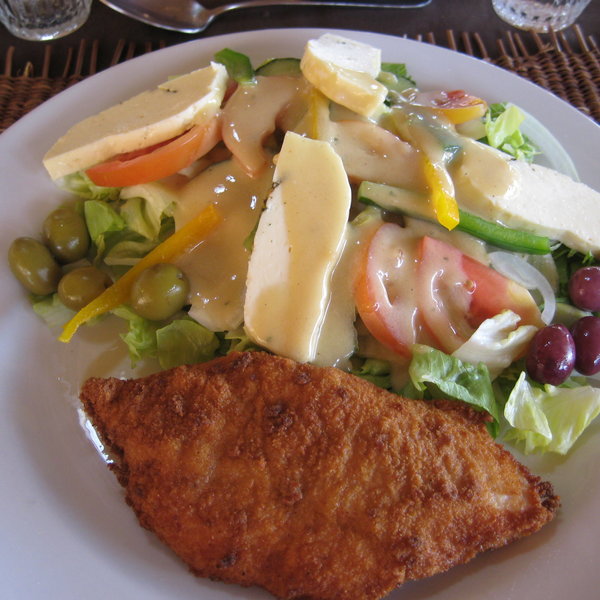
A small garden with herbs
Camp Kipwe prides itself on sourcing food from nearby villages - an opportunity to contribute to the local economy while serving guests with fresh, organic ingredients. A variety of indigenous plants were planted and are carefully harvested around the lodge.
More recently, the chefs at Kipwe started a small picturesque herb garden on-site, with future plans that include harvesting vegetables. The scale of the project is monitored to ensure purchases from Dimab will continue supporting the local community. Local farmers are also offered the chance to partake in workshops on how to develop more sustainable agriculture techniques and manage their crops as good as possible.
See more great sustainability projects in Namibia
Communications
- Power supply notes
- There is a back-up generator if the mains power fails.
- Communications
- Cellphone reception is available, and the lodge also has a central phone that guests can use. There is WiFi in the reception area.
- TV & radio
- There are no TVs or radios in the camp.
- Water supply
- Borehole
- Water supply notes
- All bathrooms have plumbed-in basins and showers, with hot and cold running water, and flushing toilets.
Health & safety
- Malarial protection recommended
- Yes
- Medical care
- The nearest doctor is in Khorixas. In a medical emergency, patients would be flown to Windhoek.
- Dangerous animals
- Moderate Risk
- Security measures
- There are guards on site day and night.
- Fire safety
- Fire extinguishers are located in all rooms and in the main areas.
Useful info
- Disabled access
- On Request
- Laundry facilities
- Due to the lack of water in the area there is no laundry service available at Camp Kipwe.
- Money
- Each room has a digital safe.
- Accepted payment on location
- Camp Kipwe accepts cash payments in Namibian dollars and South African rand, as well as credit-card payments by Visa and Mastercard.
Plan and book your trip with Expert Africa
All of our trips are tailor-made, so we'll always adapt them to suit you. Talk to an Expert and let us plan and arrange your perfect trip.

Talk to an Expert
Call or email us now! We’ll match you with the Specialist in our team who is best suited to help you. Then together we can start planning your trip.

Set up your itinerary
Based on our experience and your ideas, your specialist will create a detailed, costed itinerary. We’ll refine it together, until we have a trip that you’re perfectly happy with.

Prepare for your trip
The same Specialist will make the seamless arrangements for your trip, send you detailed travel documents, and be available to answer any questions before you depart.

Travel with peace of mind
After you set off, you’ll be cared for by our partners in Africa, most of whom have worked with Expert Africa for decades. And if you ever need us urgently, we’re available 24/7.

When you return
We love to learn about your trip, and so will always be grateful if you’ve the time to give feedback to your Specialist when you return.
Camp Kipwe's location
Look closer at the environment and surroundings of Camp Kipwe.
Other lodges in Damaraland
Alternative places to stay in this same area.
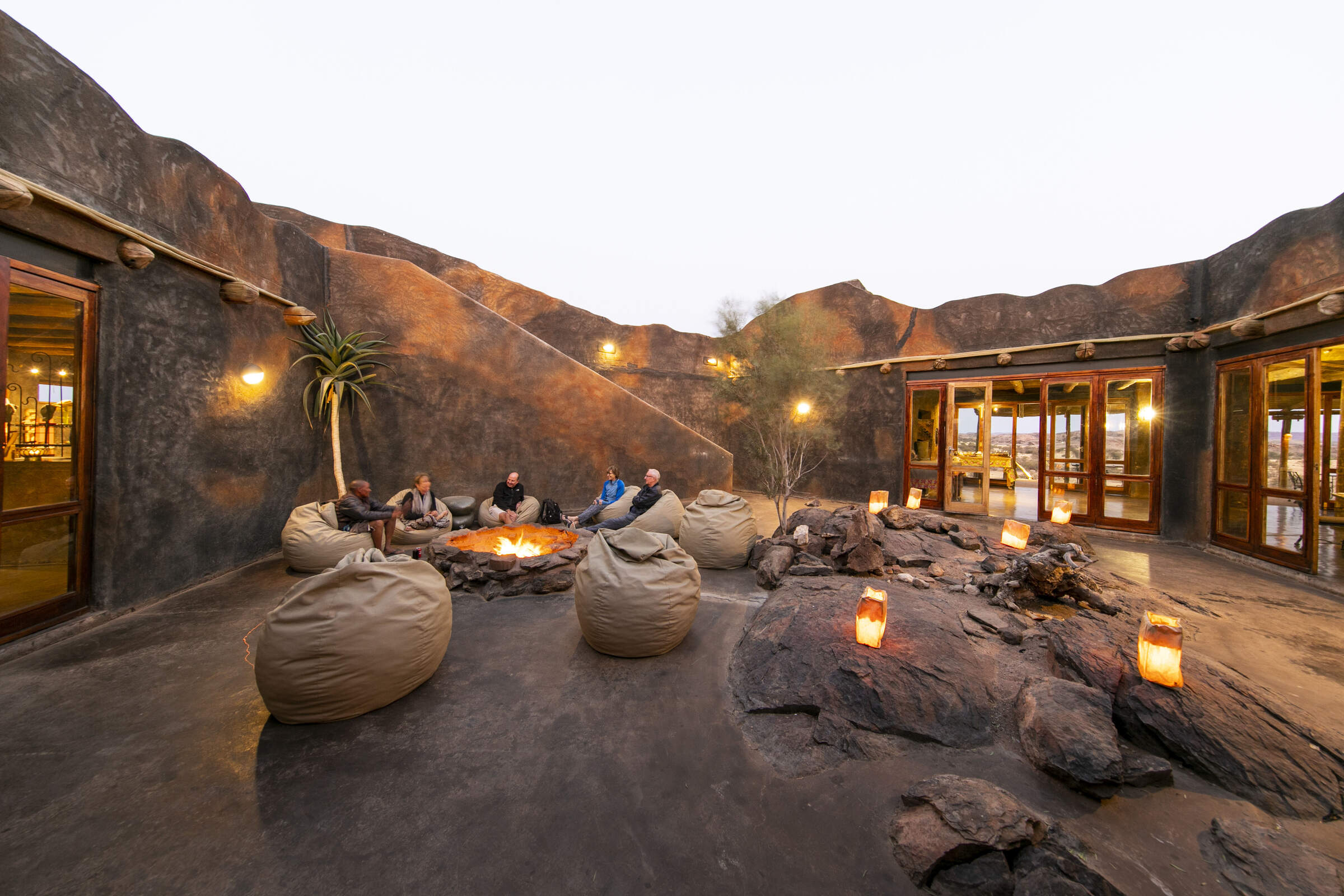
Doro Nawas
Comfortable rooms and a convenient location make the community run Doro Nawas a great base for exploring Damaraland.
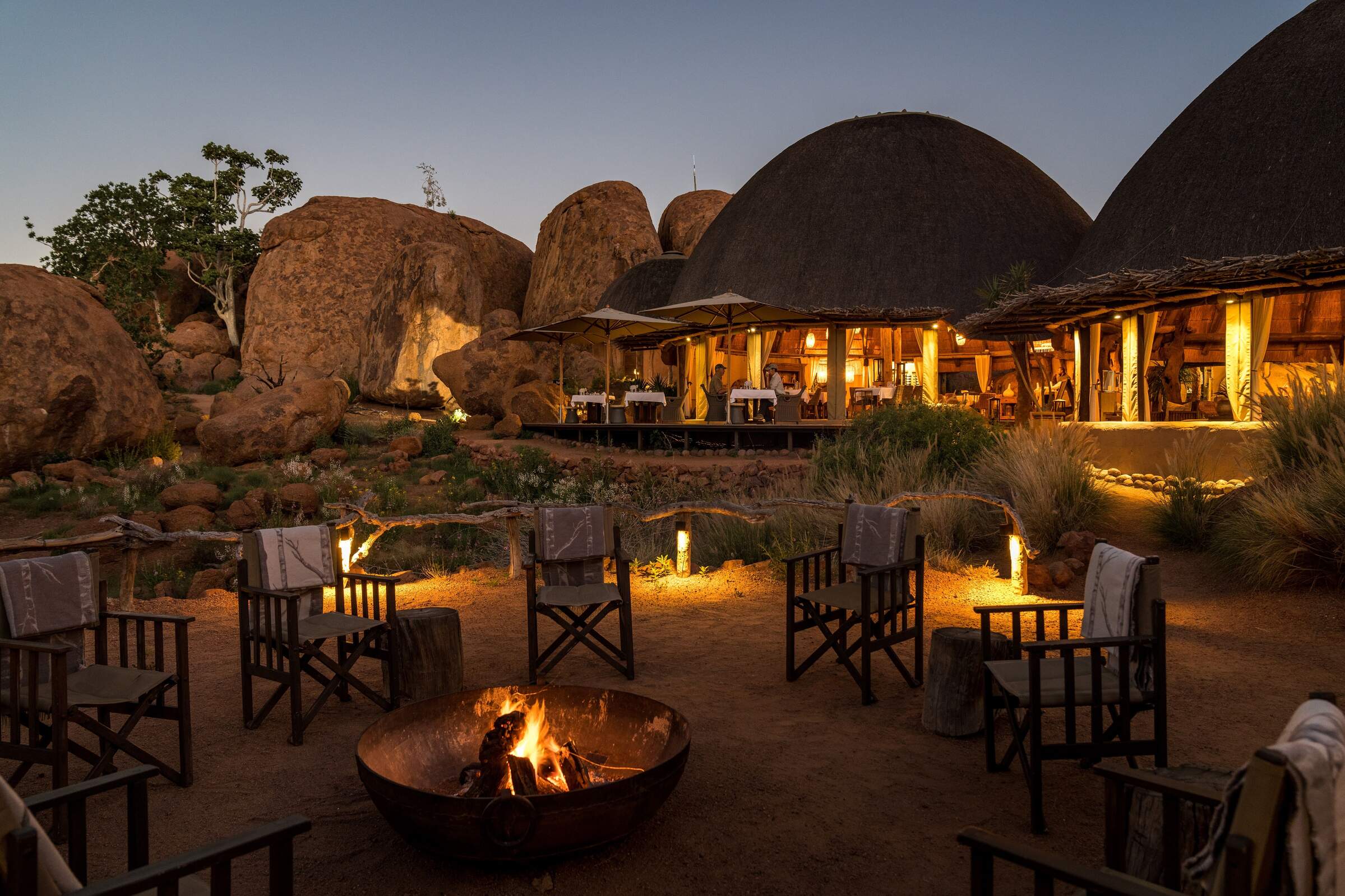
Mowani Mountain Camp
Mowani is a beautiful and stylish mountain retreat in southern Damaraland; it makes a great base for visits toTwyfelfontein.
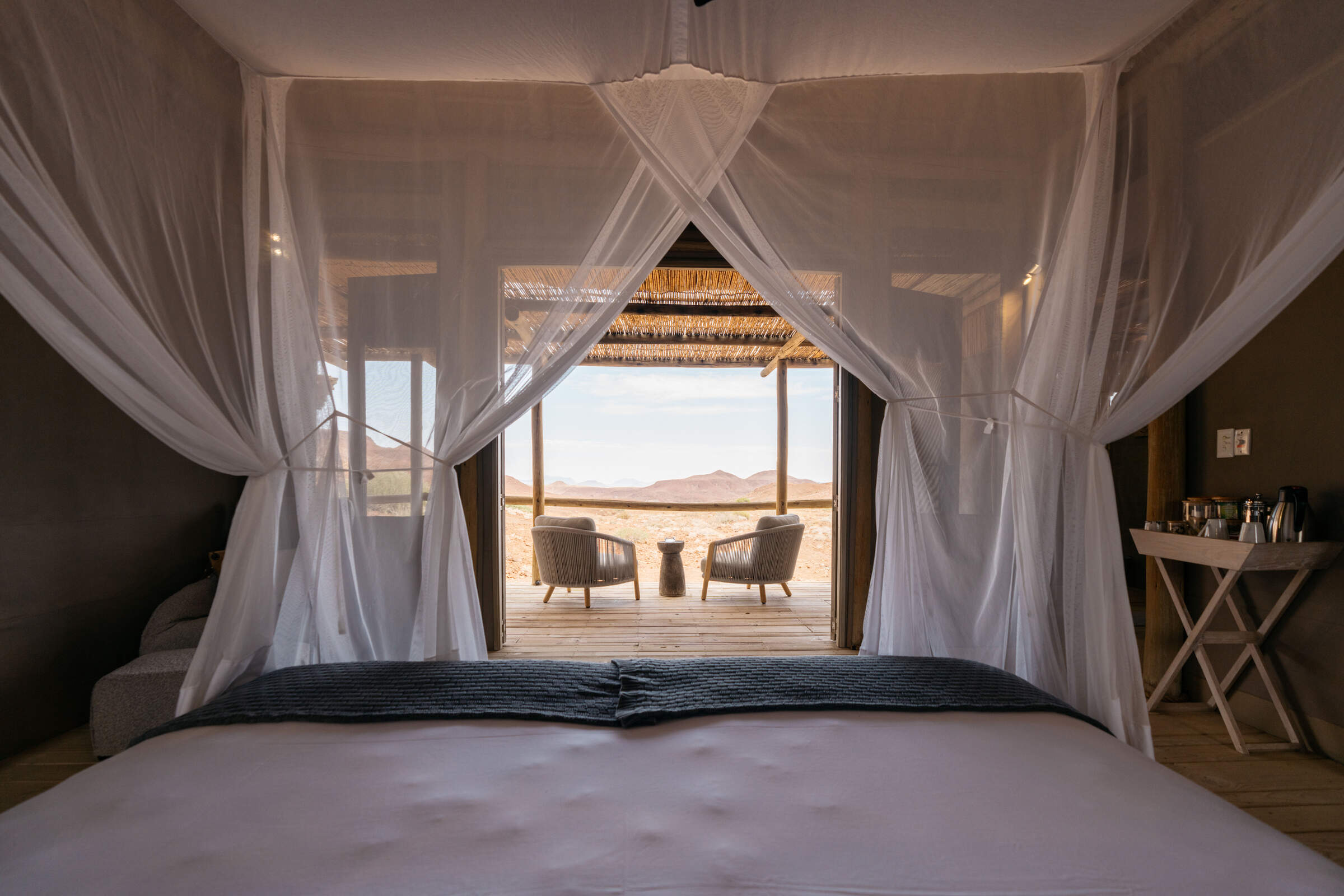
Damaraland Camp
Setting the standard for community partnerships, Damaraland Camp offers a beautiful location, a range of activities – and a genuine welcome.
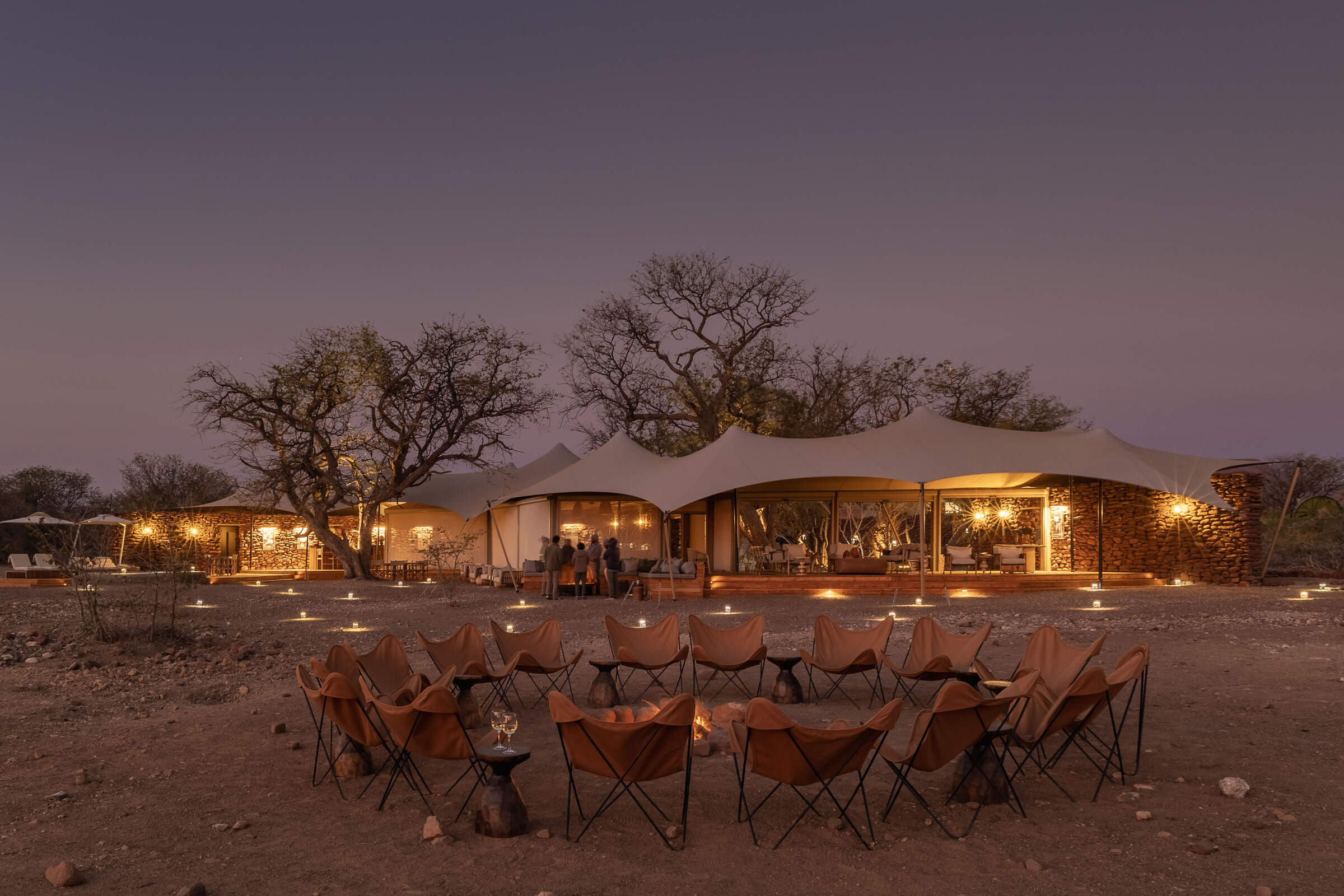
Desert Rhino Camp
Desert Rhino Camp offers a rare opportunity to track black rhino on foot in one of the last true wilderness areas – an amazing experience.
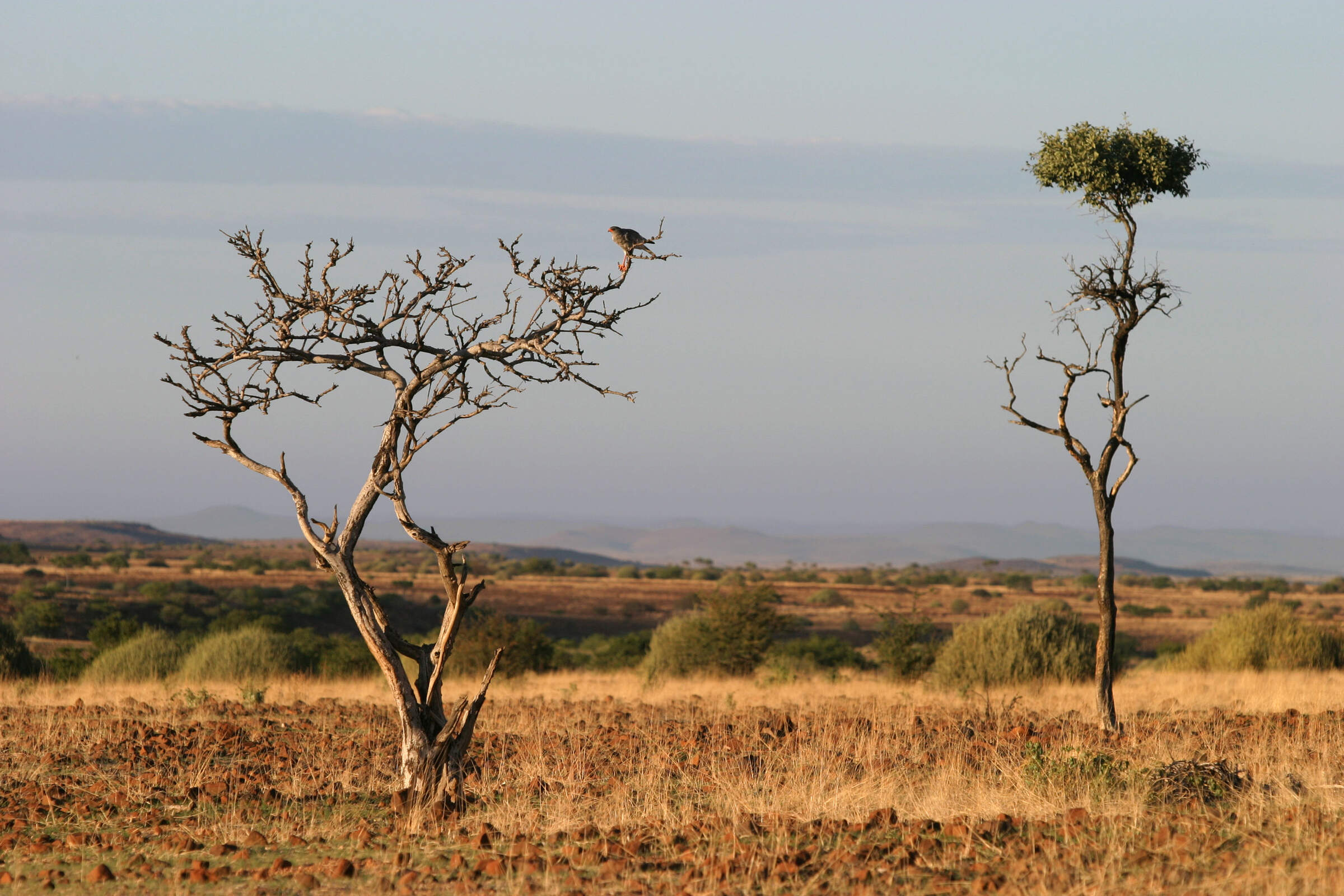
Etendeka Camp
Etendeka is an owner-run camp in the remote and less visited north of Damaraland. The camp is renowned for it's spectacular guided walking trails.
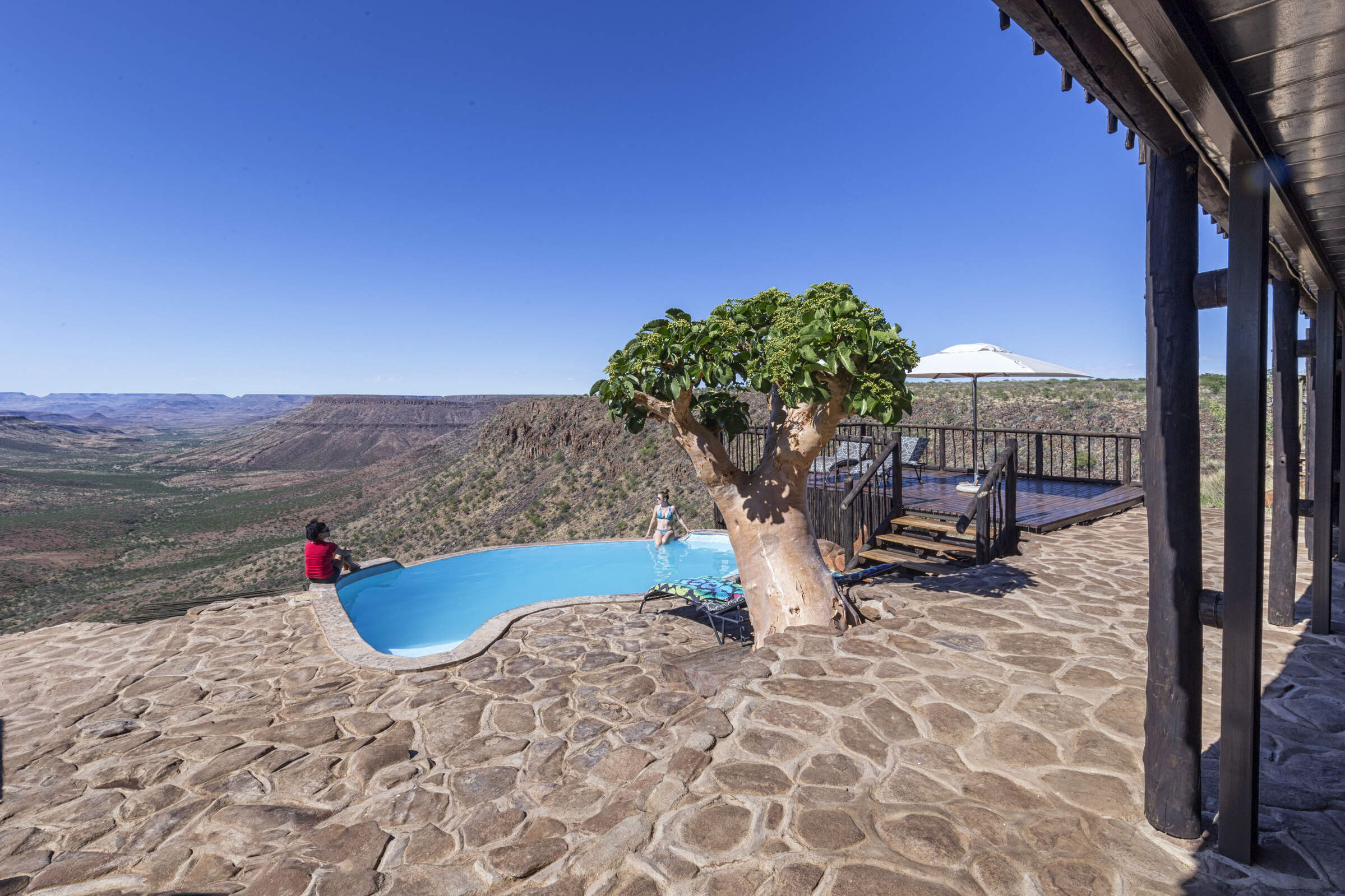
Grootberg Lodge
On the edge of an ancient plateau Grootberg Lodge has a stunning location and arguably the best views of any lodge in Namibia.
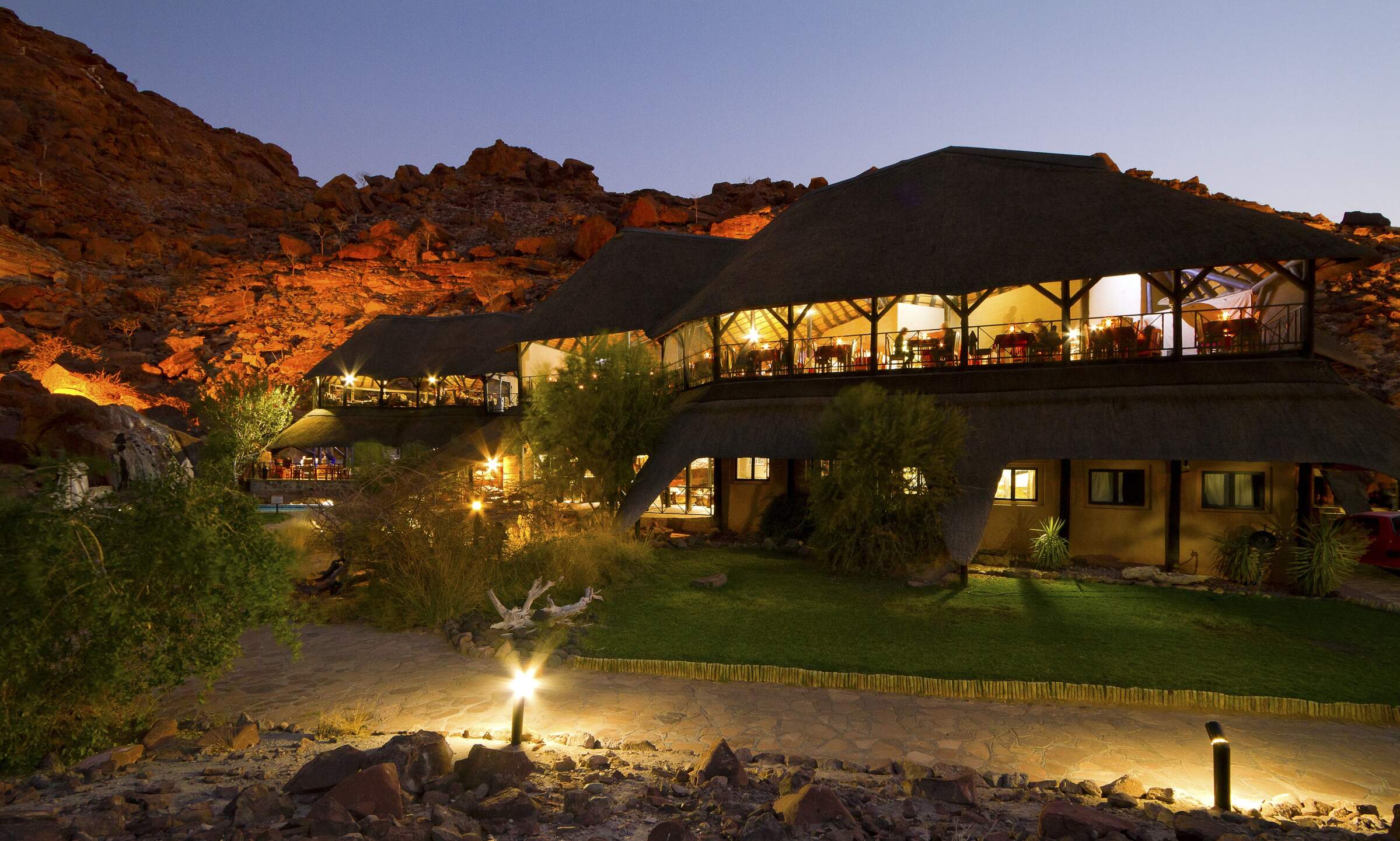
Twyfelfontein C'try Lod.
A large lodge set among the rocks, Twyfelfontein Country Lodge is a convenient base for visiting the rock engravings, which are only 4km away.
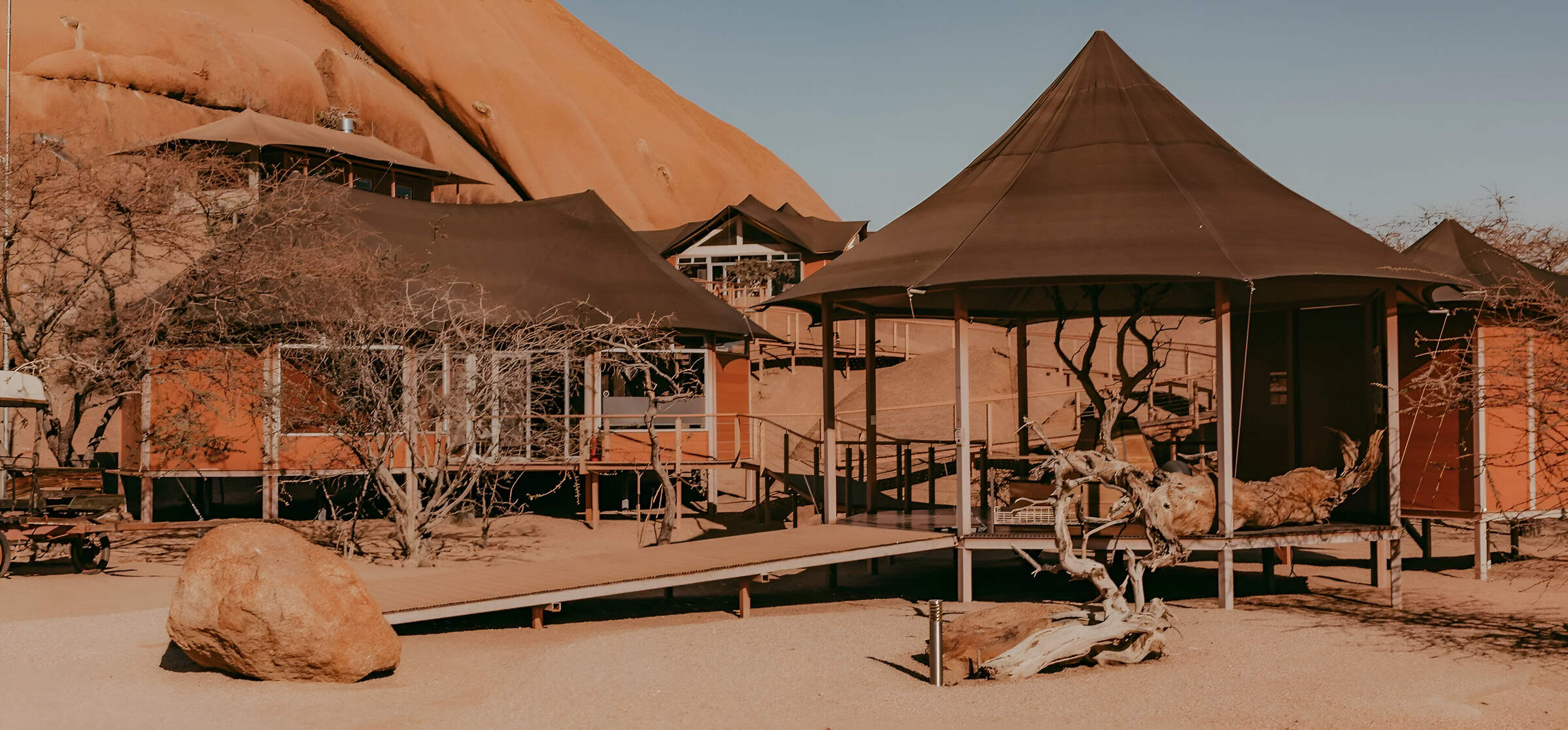
Spitzkoppen Lodge
Spitzkoppen Lodge provides stylish accommodation in an area of scenic grandeur with guided access to sites of ancient Bushman rock art.
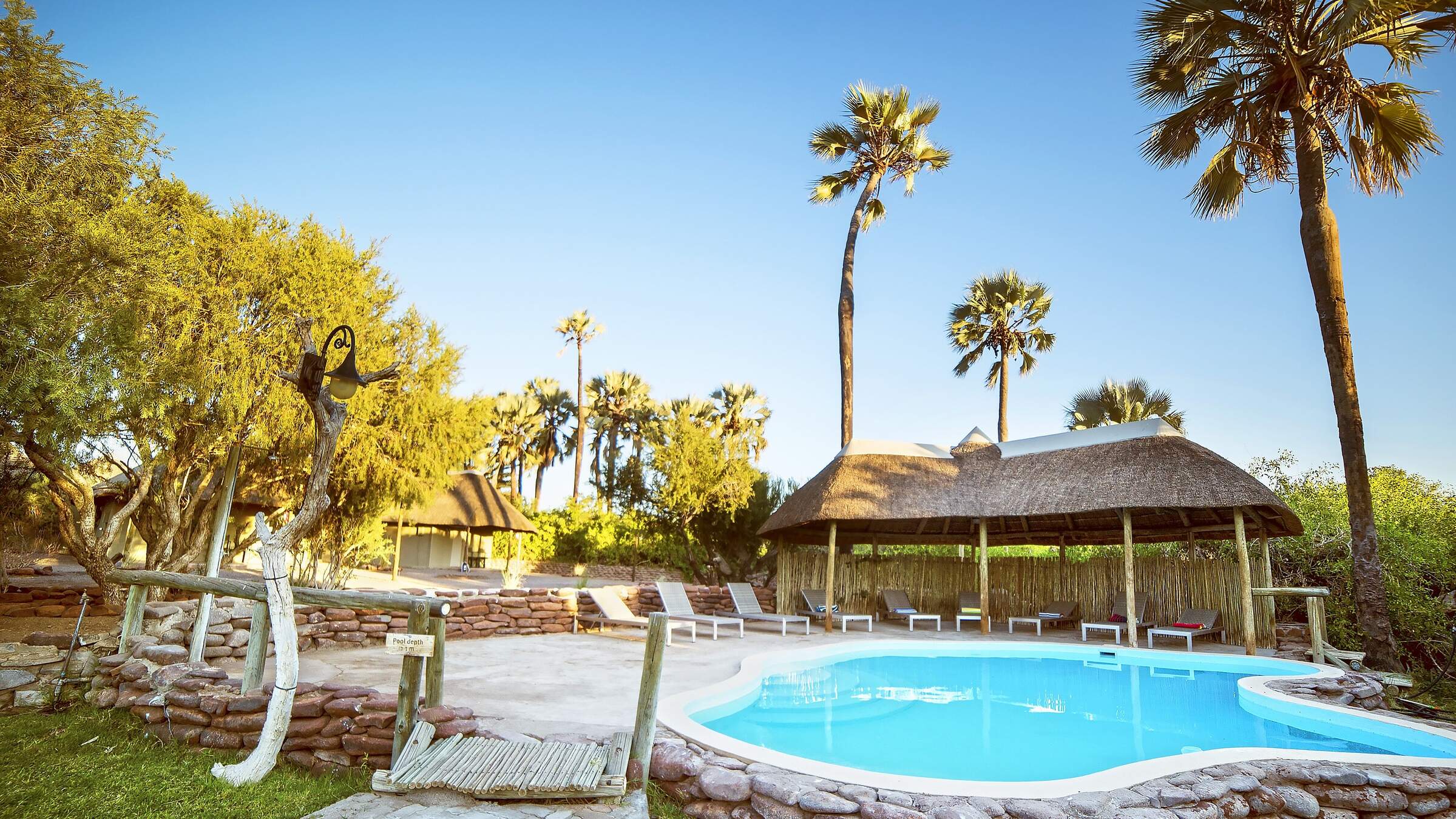
Palmwag Lodge
Palmwag Lodge has a great location by a spring in the Uniab River and offers access to an area where you can see a variety of desert-dwelling animals.
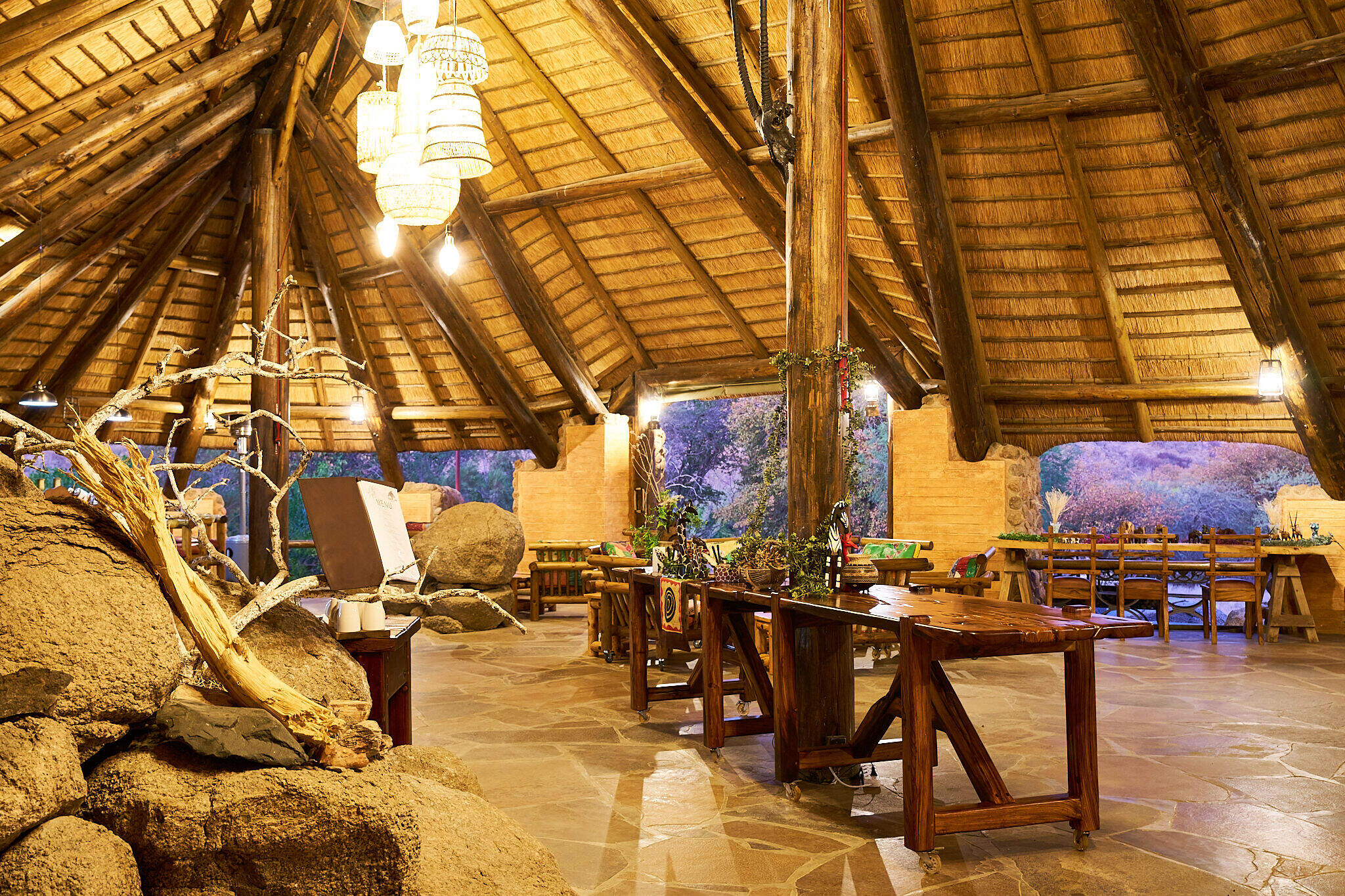
Huab Lodge
Huab is a classic little Namibian Lodge which is slightly off the beaten track in a lesser visited part of Damaraland.
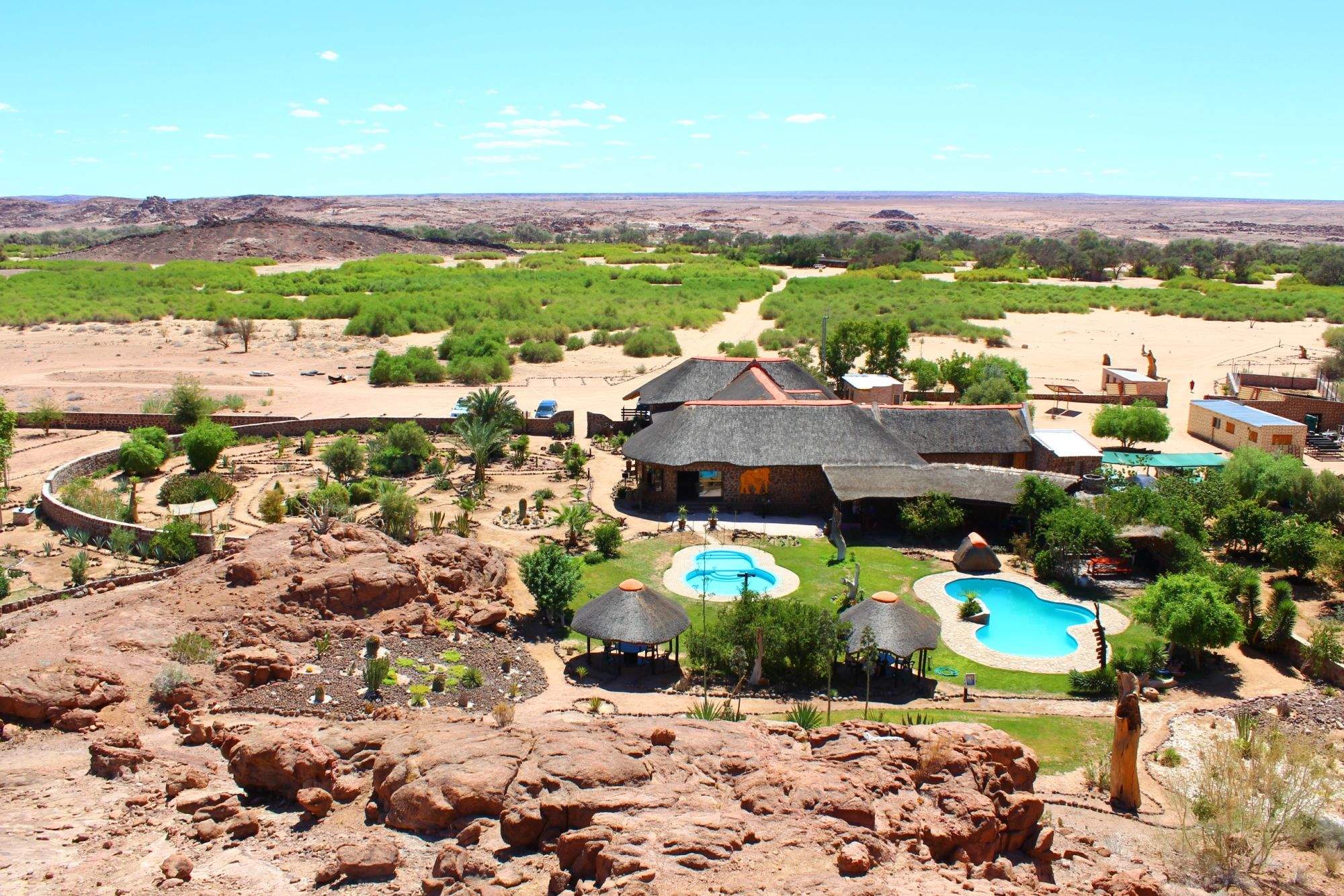
Brandberg White Lady
Brandberg White Lady Lodge, nestled at the foot of its namesake, makes a good base from which to visit bushman rock paintings including the 'White Lady'.
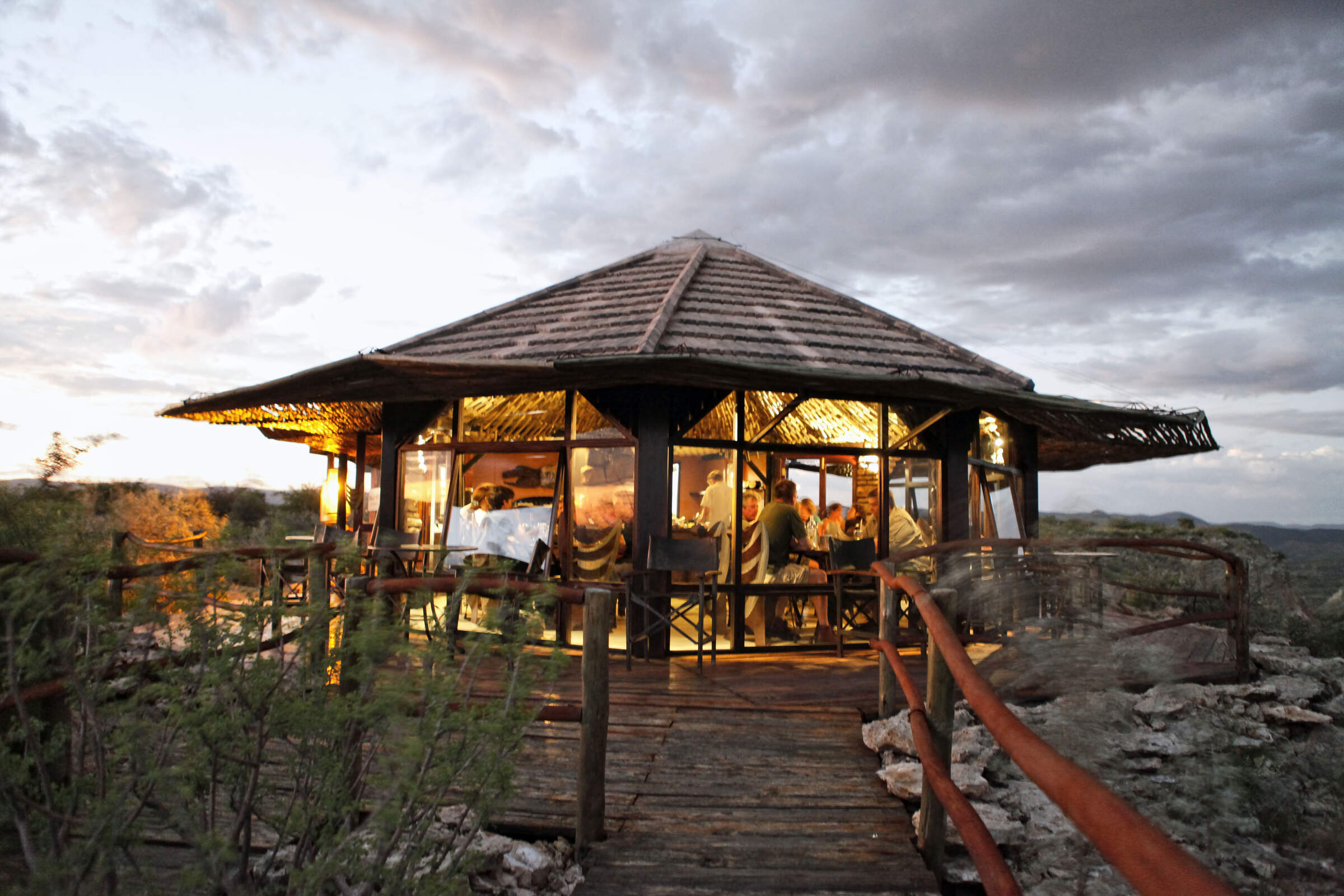
Vingerklip Lodge
Vingerklip Lodge occupies a lovely location, but is a little too far east for guests to visit Damaraland's main attractions.
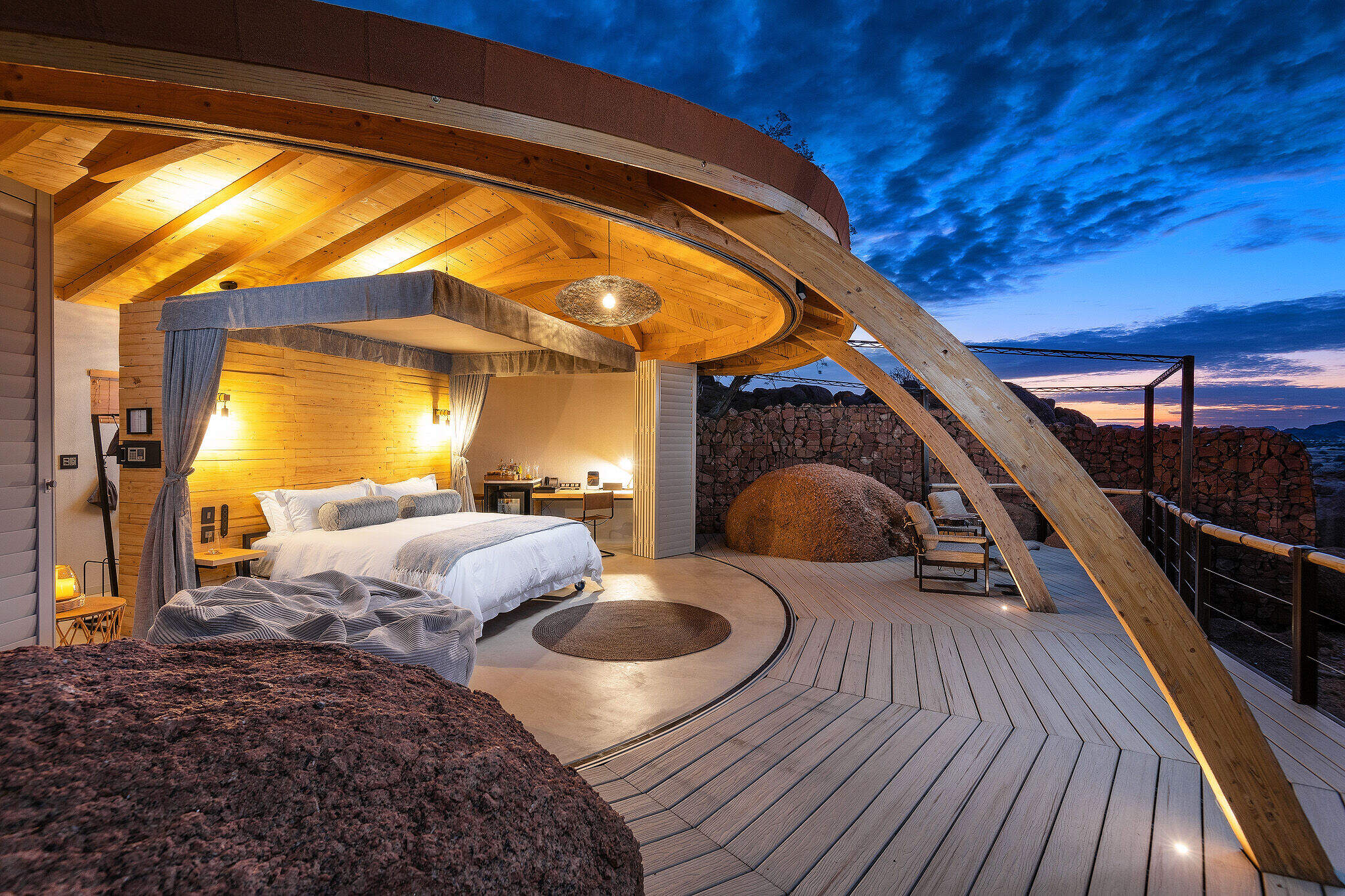
Onduli Ridge
Onduli Ridge is a luxurious, low-impact luxury camp offering top-notch guiding in a remote wilderness area of Damaraland.
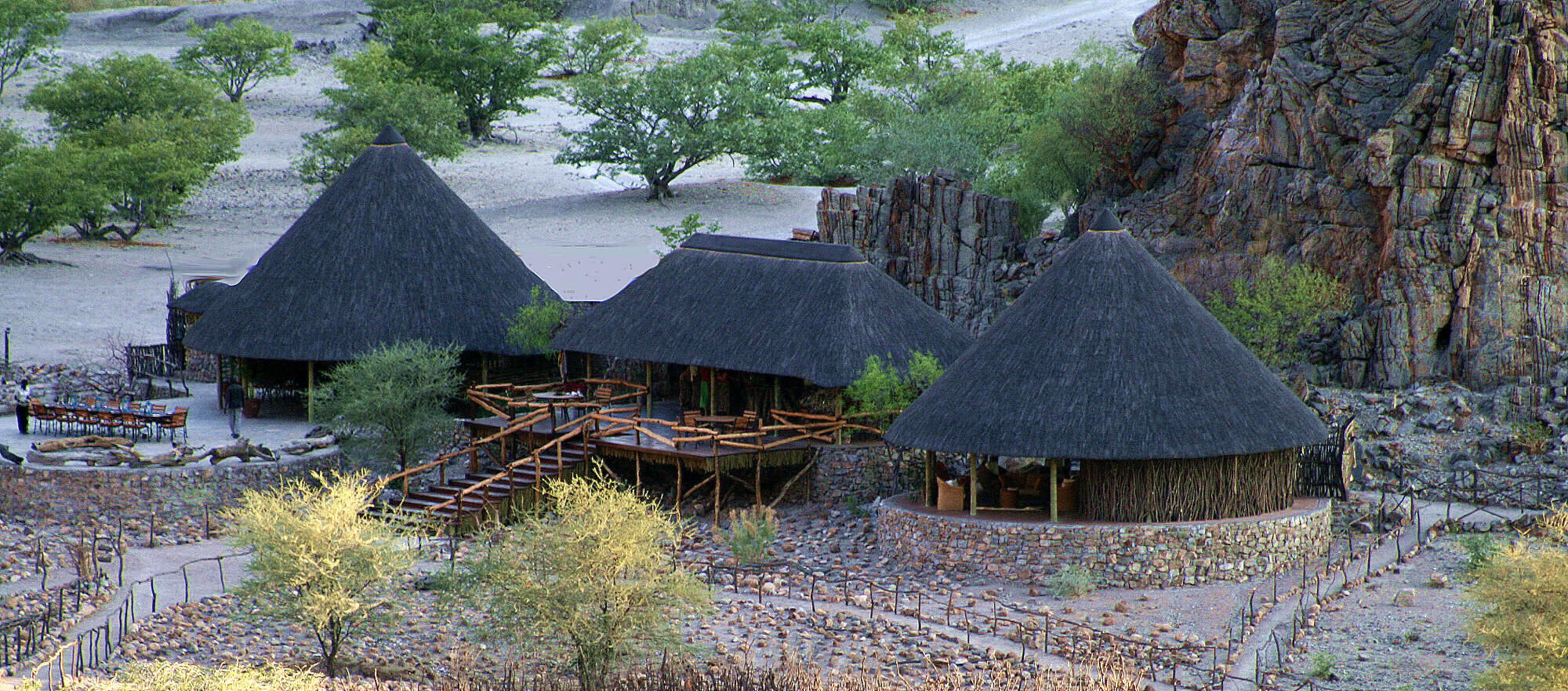
Khowarib Lodge
Khowarib Lodge has a great location overlooking the Hoanib River. This is one of the few places to offer authentic Himba village visits.
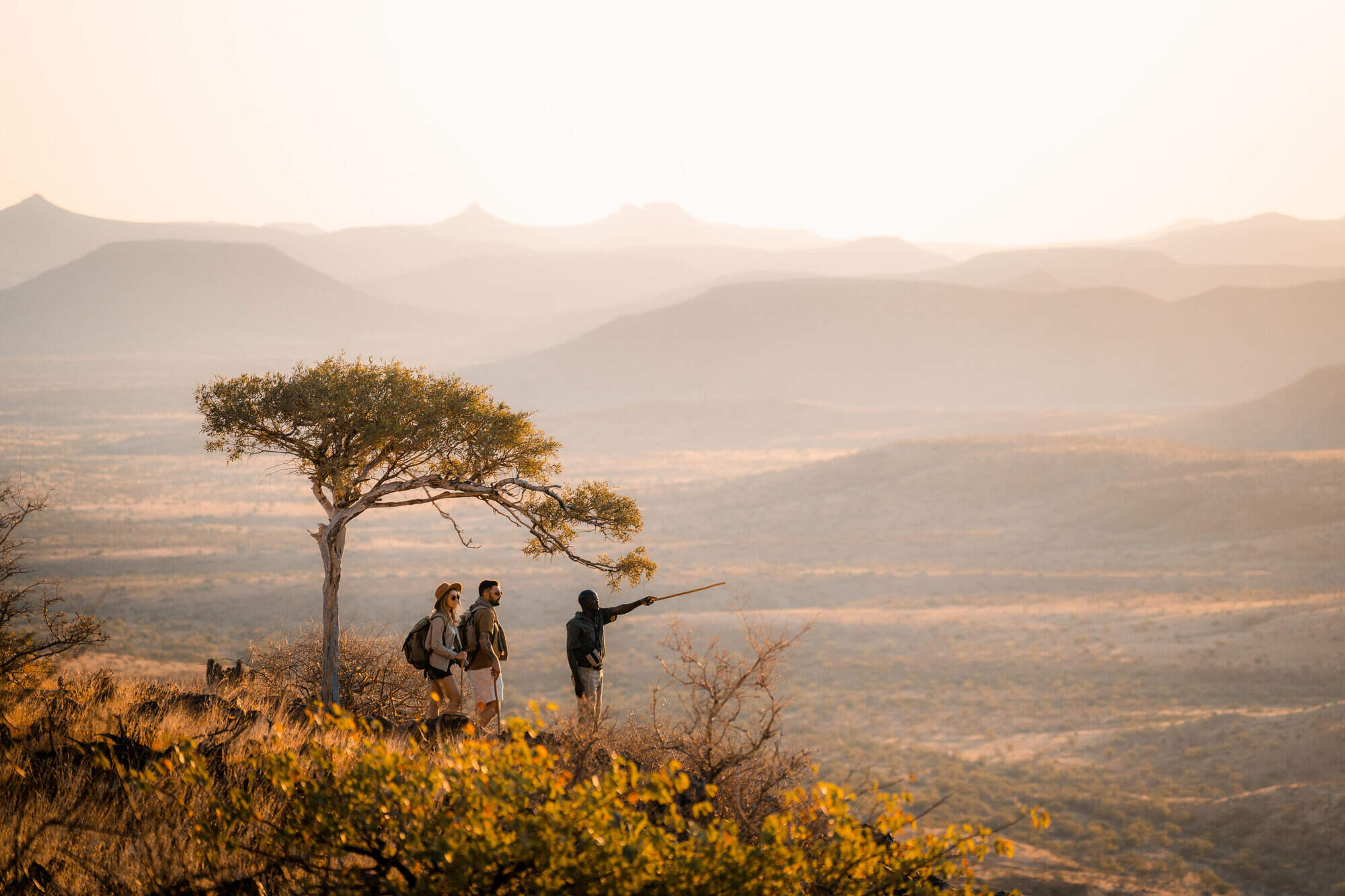
Etendeka Hiking Trail
The Etendeka Walking Trail promises to offer a back-to-basics walking and camping experience in one of Namibia's most remote and untouched wilderness areas.
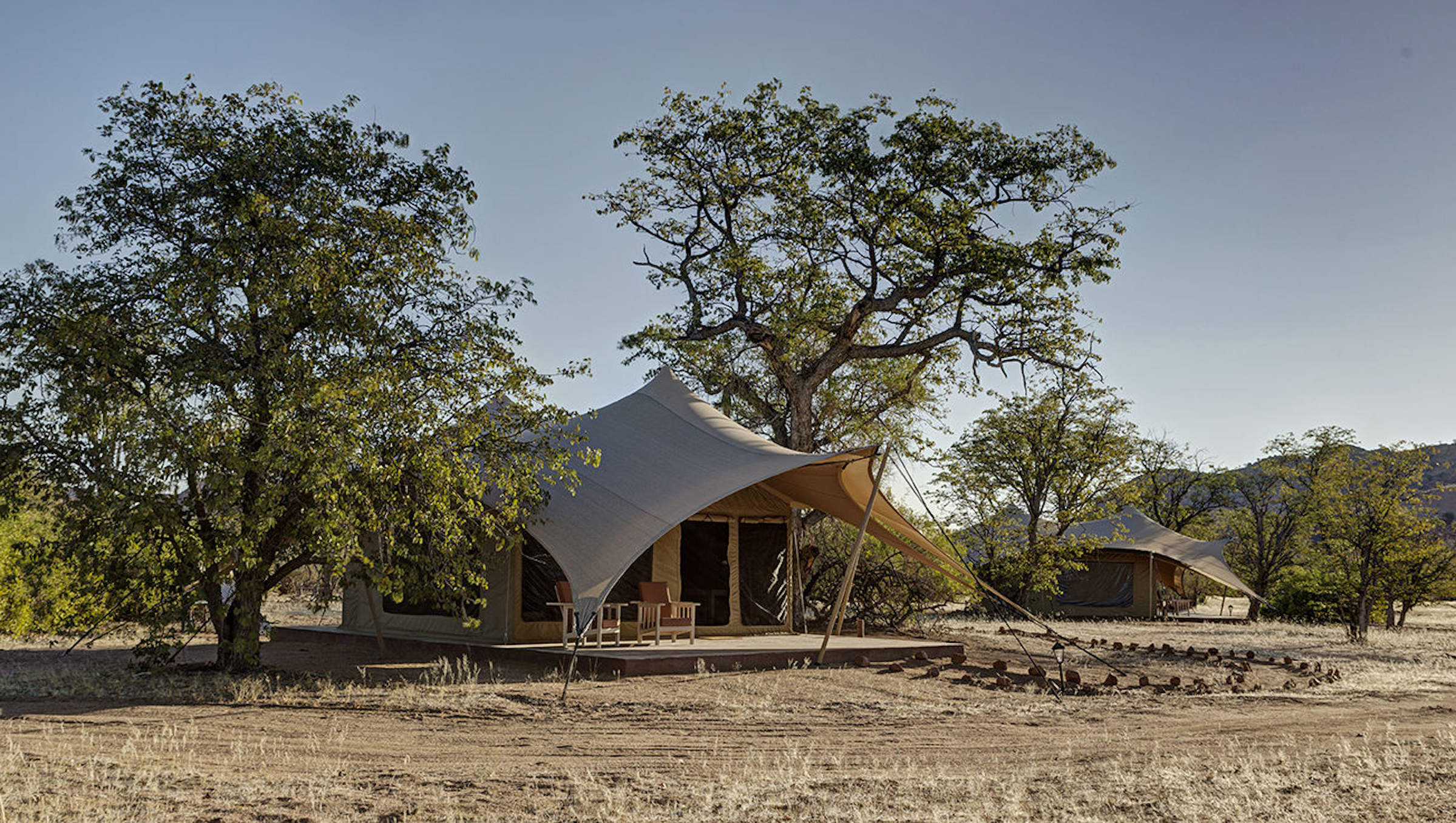
Malansrus Camp
Within easy reach of Twyfelfontein, Malansrus offers a simple but comfortable base for visits to the rock engravings or seek out desert-adapted elephants.
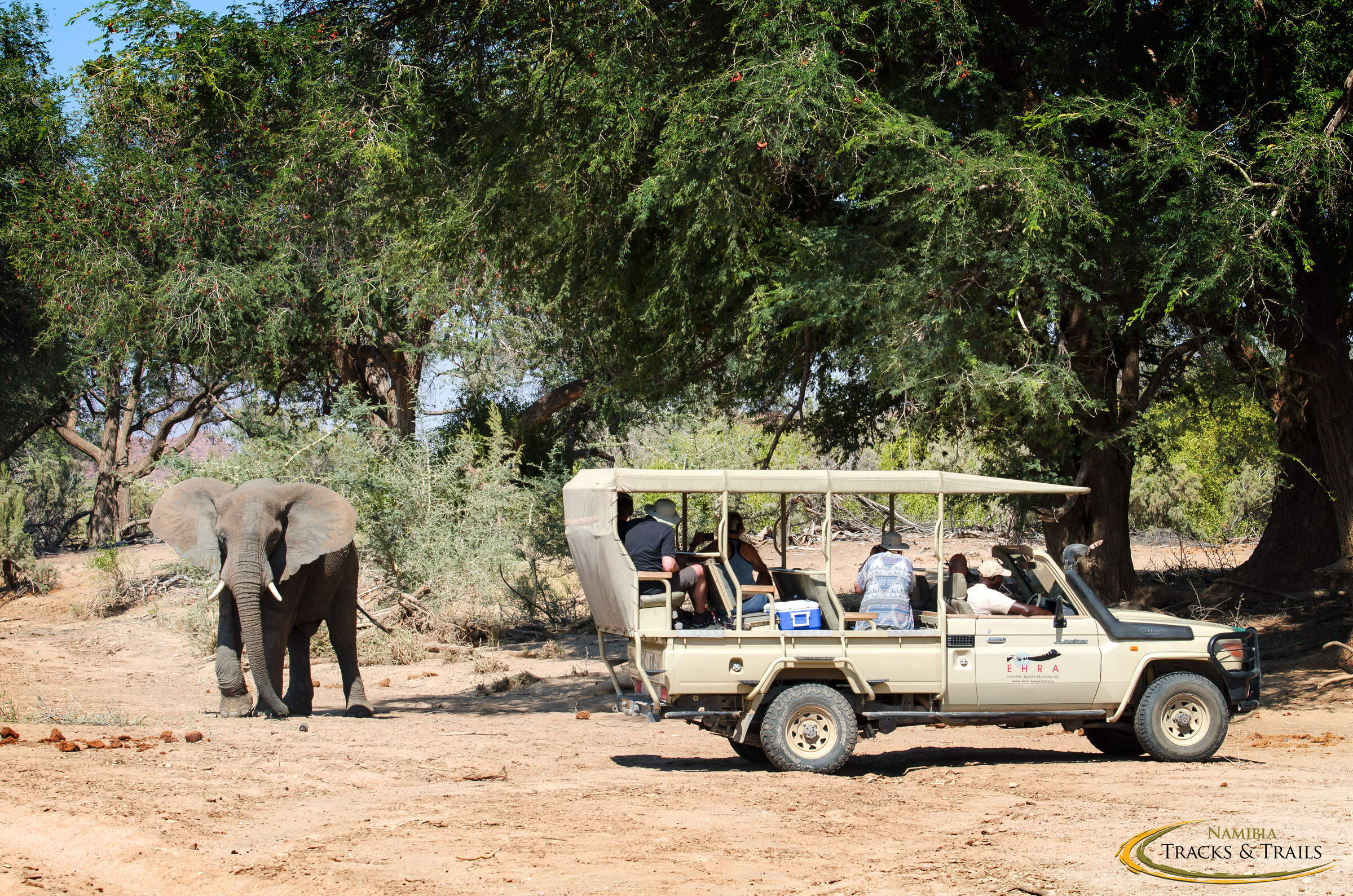
Ozondjou Trails
The simple Ozondjou Trails gives a unique perspective on living with Damaraland’s desert-adapted elephants and how tourism is key to protecting them and the livelihood of the people.
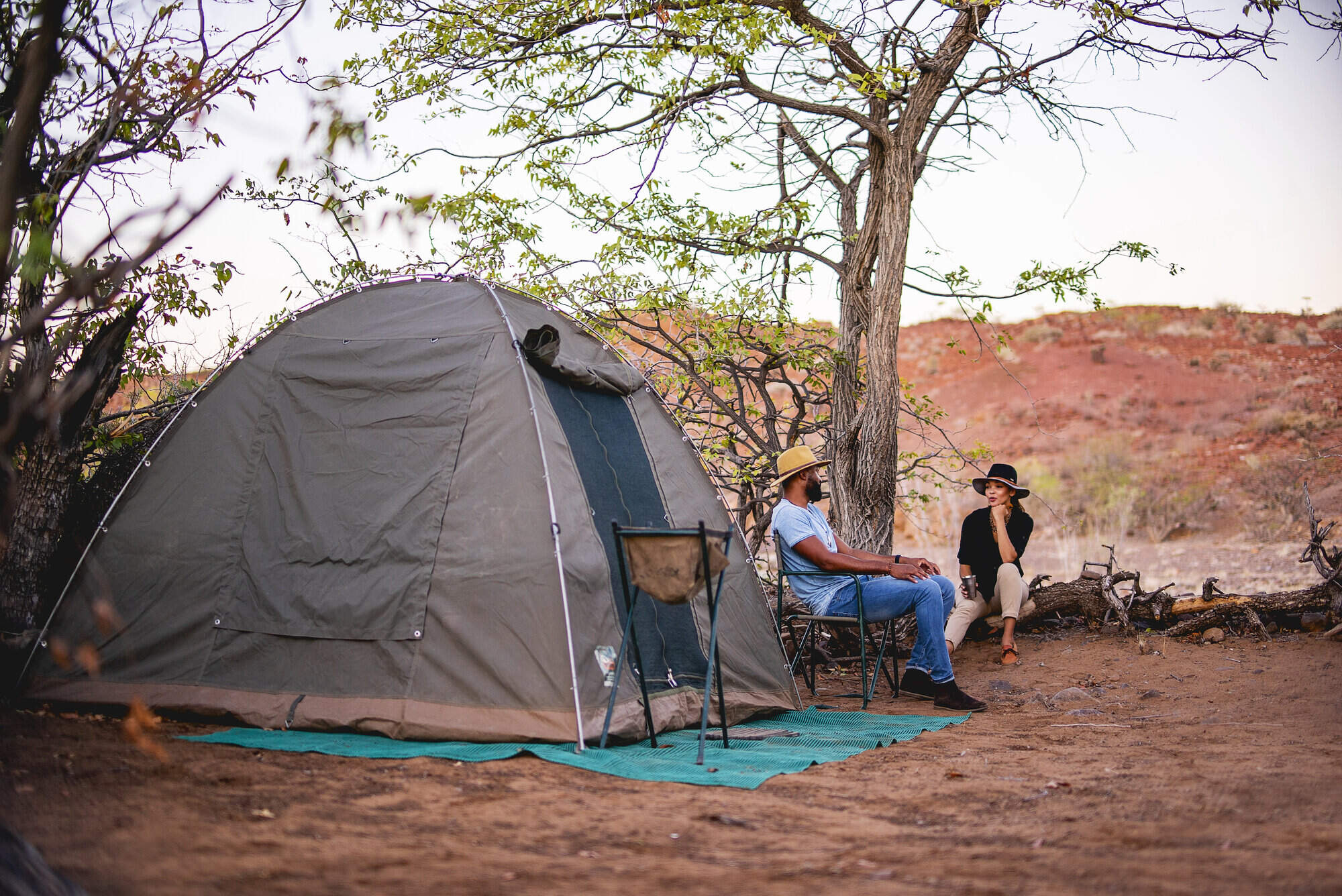
Palmwag Sleep-out
Palmwag Sleep-out is a simple camping experience and a great way to enjoy the remote beauty of the vast Palmwag Concession
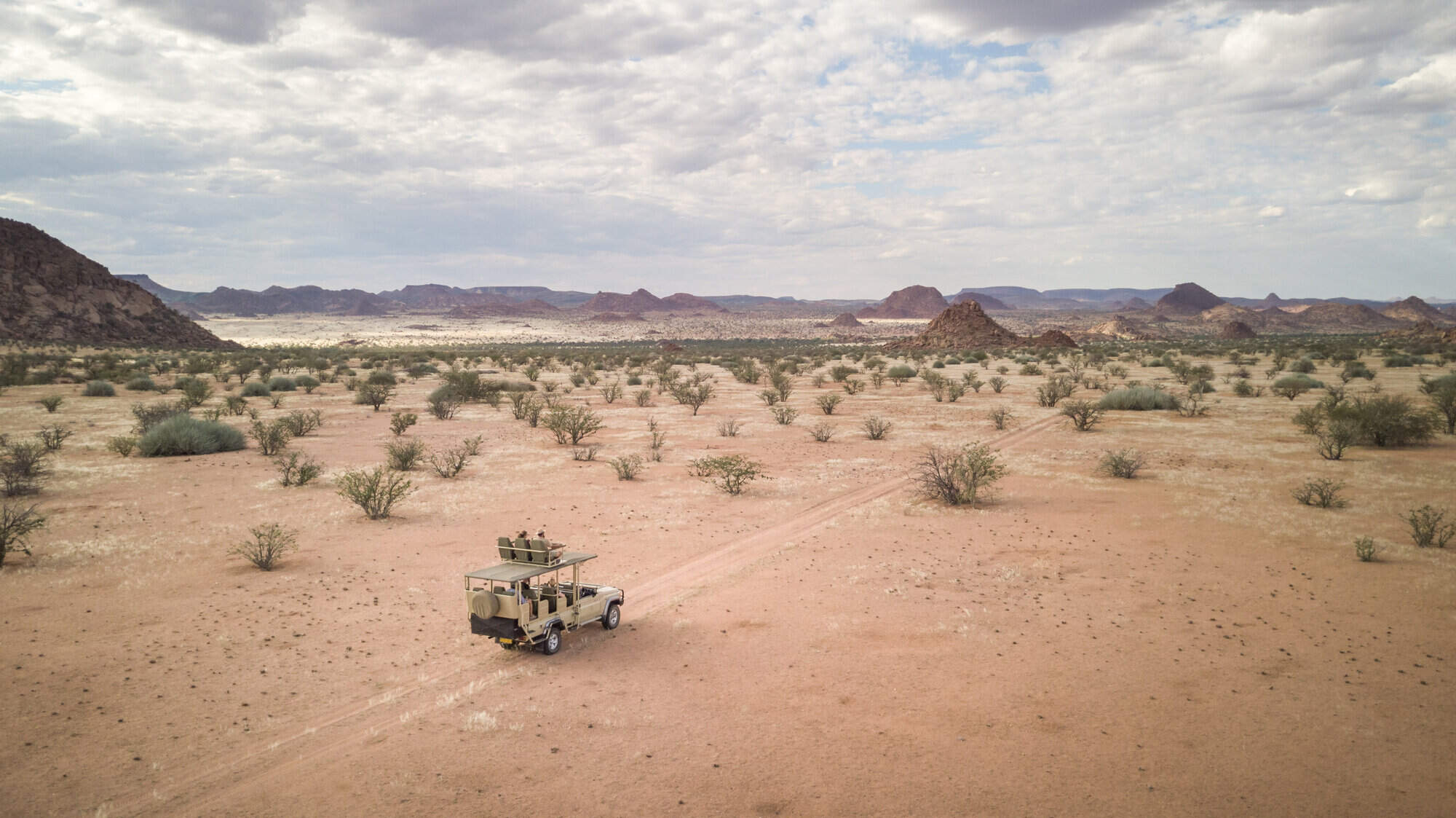
Camp Doros
Small, intimate and with excellent eco-credentials, Camp Doros is set above an ephemeral river within a remote community concession of Damaraland.
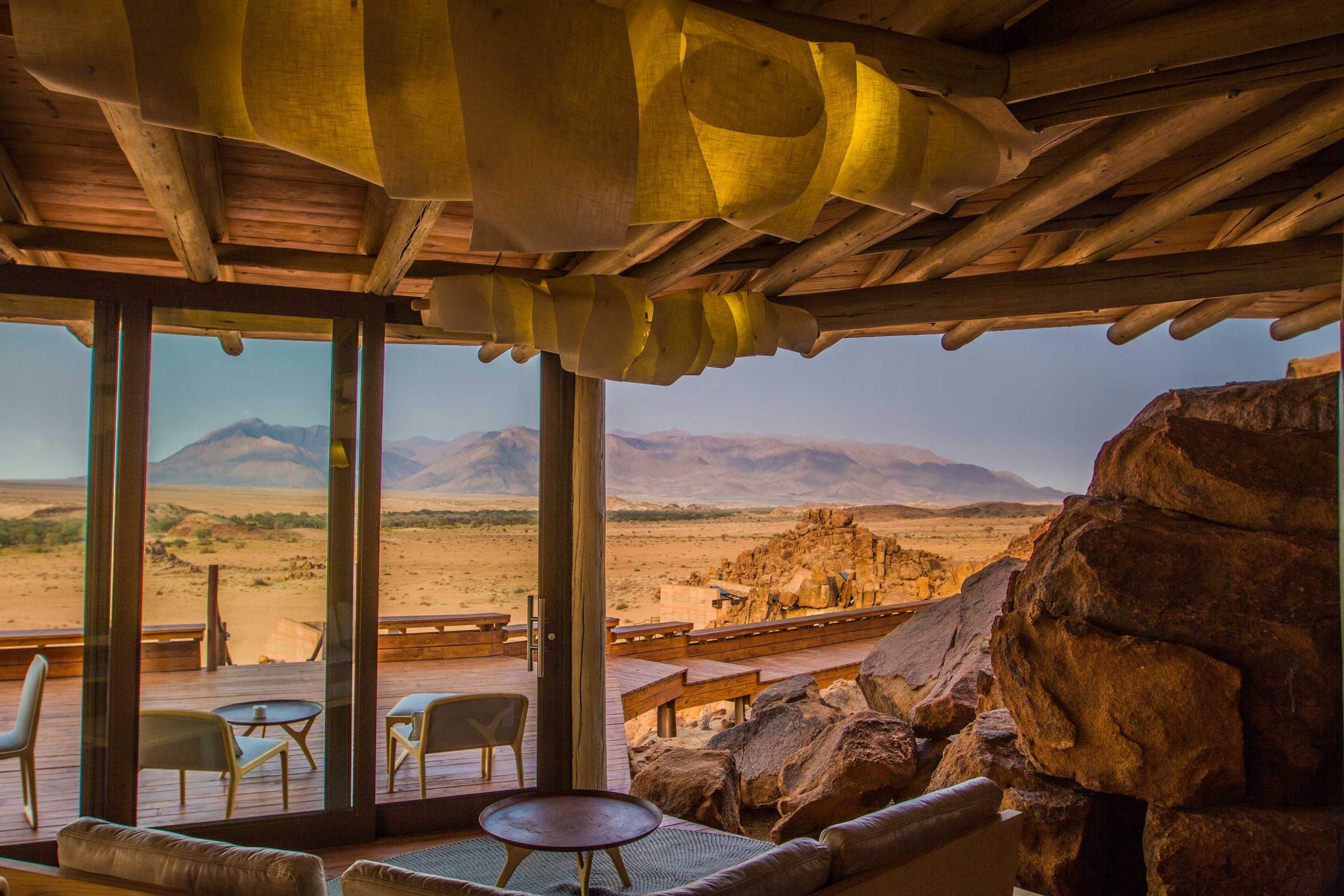
Sorris Sorris Lodge
Overlooking the Brandberg Massif, Sorris Sorris is probably the most luxurious lodge in southern Damaraland.
When to go to Damaraland
Our month by month guide: What it's like to visit Camp Kipwe in Damaraland
Jan
Feb
Mar
Apr
May
Jun
Jul
Aug
Sep
Oct
Nov
Dec
Damaraland in January
In Damaraland, January marks the start of the rainy season. The rains, though often light and localised, bring life to the desert landscape.
At Twyfelfontein, the rock engravings glisten after sporadic showers. Some days are clear and hot, with temperatures around 30°C/86°F, while others see dramatic thunderstorms. These can create flash floods in ephemeral riverbeds like the Ugab, temporarily transforming the arid terrain. The greening landscape provides a refreshing backdrop for the ancient rock art at Brandberg Mountain.
Many birds in the region are in full breeding plumage, with migrant species adding to the variety. Wildlife, including the desert-adapted elephants, disperses across the rejuvenated landscape, making sightings more challenging, but rewarding. The Damara Living Museum offers insights into how local communities adapt to these seasonal changes.
- Variable weather: hot, dry or humid with rain
- Occasional localised thunderstorms
- Wildlife dispersed, harder to spot
- Stark mountains against atmospheric skies
- Few tourists, low rates at accommodations
Our view
This is not a great time to visit
Weather in January
Damaraland in February
February is typically the wettest month in Damaraland, though rainfall remains patchy across this predominantly arid region.
The Spitzkoppe granite peaks against thunderous, atmospheric skies create dramatic vistas for photographers. Some days are clear and hot, while others see afternoon thunderstorms that briefly but dramatically charge the landscape. These rains can make travel more challenging, especially to remote sites like the Epupa Falls. However, the landscape feels vibrant and alive, with insects and smaller animals more easily spotted, and seasonal flowers blooming. Many birds and animals are raising their young, offering unique wildlife viewing opportunities.
Despite the rains, the rock art at Twyfelfontein and the Petrified Forest remain accessible.
- Hot and humid with occasional rain showers
- Thunderstorms meander over the landscape
- Birdlife spectacular, migrant species present
- Wildlife harder to see, but landscape lush
- Low tourist numbers, great for solitude
Our view
This is not a great time to visit
Weather in February
Damaraland in March
March in Damaraland usually sees the main rains tailing off, though precipitation varies greatly across the region. Many days are clear, with strong sun driving temperatures up, while others may experience light rainfall.
The landscape often appears vivid and green, providing a striking contrast to the bare rocky outcrops of Spitzkoppe and Brandberg. Animals such as springbok and mountain zebra may be finishing raising their young. Small herds of plains game such as these can be more visible against the greener backdrop. The Damara Living Museum showcases how local communities adapt to these seasonal changes. The clearer skies towards the end of the month make for excellent stargazing at lodges where you can move your bed to sleep under the stars.
- Weather becoming drier as month progresses
- Animals looking healthy after months of plenty
- Balmy nights sleeping under star-filled skies
- Migrant birds begin to depart
- Few tourists, rates often low at lodges
Our view
A good time to visit, with pros & cons
Weather in March
Damaraland in April
April in Damaraland is typically dominated by dry weather, with decreasing chances of rain. Temperatures begin to fall, but days remain pleasantly warm. The rains often leave the landscape verdant, creating stunning photo opportunities at sites like the Etendeka Plateau and Klip Valley.
Animals are in fantastic condition, often with fast-growing young in attendance. The desert-adapted elephants may be more easily spotted as they begin to return to the riverbeds to feed on Ana and Camelthorn trees. With dust washed from the atmosphere, photographers can capture clear shots of spectacular landscapes. Stargazers will enjoy increasingly clear night skies. In the Palmwag Concession, water and food remain in plentiful supply, so finding mammals such as black rhino can still be challenging, but worth the effort.
- Cooler nights, days still warm and pleasant
- Landscape still green from recent rains
- Air clear, for crisp photographs
- Wildlife starting to become easier to find
- Easter sees an increase in visitors
Our view
A good time to visit, with pros & cons
Weather in April
Damaraland in May
By May, Damaraland is usually drying out fast. If rains have been good, the land remains green, especially around natural springs found in valleys and craggy rocksides. The air quality and clarity can be amazing, making this an ideal month for photography at sites like Twyfelfontein and along the remote Hoanib riverbed.
Temperatures are moderate, typically warm with crisp, clear mornings and blue skies. Evenings are cool enough to wear an extra layer. Many lodges still charge low season prices, offering good value. The combination of increasingly good wildlife sightings, beautiful landscapes, and crystal-clear air make May one of the best months to visit Damaraland. It's an excellent time to explore the region's geological wonders, such as the ancient Etendeka lava flows.
- Lovely weather: warm days, cool nights
- Landscape drying out, still some greenery
- Clear, sharp colours for photography
- Wildlife more visible along scenic riverbeds
- Low visitor numbers, moderate lodge rates
Our view
A very good time to visit
Weather in May
Damaraland in June
June sees Damaraland dry and clear, with blue, largely cloudless skies. Days are often lovely and warm, but nights can be cold, sometimes below freezing in desert areas.
Visitors should pack warm clothing for early morning nature drives to spot desert-adapted elephants or black rhinos. Most outdoor pools are too cold for swimming, except for the very dedicated. It’s a particularly good climate for walking; either short walks or perhaps a multi-day hike on the Etendeka Plateau.
Historically, June prices have been low, but Damaraland's increasing popularity means many lodges now consider it high season.
- Clear, bright days and cold nights
- Wonderful for stargazing and night walks
- Good wildlife viewing in remote wildernesses
- Hiking comfortable in cooler temperatures
- Moderate lodge rates, increasing bookings
Our view
A very good time to visit
Weather in June
Damaraland in July
July in Damaraland offers fairly warm temperatures above 20°C/68°F in the middle of the day, but often cold nights. Visitors should dress in layers and be prepared for chilly mornings and evenings.
Rain is extremely rare, and clear skies make for great photographs of the sandstone mountains in morning and evening light. As vegetation shrivels, animals gather near food and water sources, making sightings of desert-adapted wildlife more likely. Elephant herds are more regularly seen along dry riverbeds during this period.
Lodges charge high season rates, and many are booked up well in advance, especially during European school holidays.
- Dry days, clear skies, crisp cold nights
- Peak time for wildlife viewing in Damaraland
- Desert-adapted elephants more easily spotted
- Wonderfully cool for day walks and longer hikes
- High season rates, book accommodations early
Our view
A very good time to visit
Weather in July
Damaraland in August
August is the height of Damaraland's winter. Expect cloudless skies and usually warm sun during the day, but nights can drop to freezing in desert areas. Visitors should bring warm clothes for nature drives and walks in chilly mornings and evenings.
The landscape begins to change from green to golden grasses and stark hillsides. Wildlife sticks close to dry river-beds where desert-adapted elephants dig for water, creating waterholes for other animals.
The clear, dry conditions make it an excellent time for hiking and exploring geological features like the Organ Pipes and Burnt Mountain.
August is the most popular time to visit Damaraland, especially for families. Booking well in advance is essential.
- Perfect weather for outdoor activities
- Excellent wildlife viewing opportunities
- Popular time for hiking and tracking rhino on foot
- Good time for cultural experiences at Damara Living Museum
- Peak season, lodges booked up well in advance
Our view
Fantastic: the very best time to visit
Weather in August
Damaraland in September
September in Damaraland brings blue, cloudless skies and fantastic wildlife viewing. Rain is almost unheard of, and as the month progresses, days and nights quickly get warmer. Daily maximums can reach the low 30s Celsius/mid-80s Fahrenheit, though low humidity keeps it comfortable. The air becomes dustier, occasionally affecting visibility for photographers at sites like Twyfelfontein or Brandberg.
In the Palmwag Concession and along the Ugab River, animals congregate around remaining water sources, making September one of the best months for game viewing, especially for desert-adapted elephants and black rhinos, but also desert-adapted lion. It's a popular month for visitors, particularly safari enthusiasts seeking sightings of these unique sub-species.
The Himba at Khowarib provide insights into how local communities adapt to the dry season.
- Warm days, nights getting warmer
- Landscape golden brown, very photogenic
- Prime time for seeing desert-adapted wildlife
- Air can be hazy with dust
- High season rates, book well in advance
Our view
Fantastic: the very best time to visit
Weather in September
Damaraland in October
Damaraland is usually at its hottest and driest in October. Temperatures build throughout the month, with daily highs potentially exceeding 40°C/104°F towards the end. The extreme dryness, though, makes even these high temperatures bearable.
Wildlife watching is at its best, particularly in areas like the remote Palmwag Concession and along the Hoanib River. October is popular among wildlife enthusiasts, as shyer species such as brown hyena and cheetah are more regularly seen. However, dust and occasional smoke may make the air hazy, challenging landscape photographers but creating beautiful sunsets.
Visitor numbers can decrease towards the end of the month, potentially allowing for last-minute bookings at some lodges.
- Hot and dry, true desert conditions
- Wildlife congregates at remaining water
- Excellent month for photographing sunsets
- Peak tourist time, expect higher rates
- Unusual species like brown hyena more regularly seen
Our view
A very good time to visit
Weather in October
Damaraland in November
November in Damaraland is unpredictable; sometimes dry and hot, sometimes cloudier and cooler. Typically, mornings are hot and clear, with clouds gathering from the afternoon. Humidity builds, occasionally resulting in spectacular thunderstorms with convection rainfall in late afternoons. These storms are usually localised and may not reach desert areas.
Places receiving good rain, like parts of the Palmwag Concession, quickly turn green, softening the landscape. Many mammals give birth, offering unique wildlife viewing opportunities. Once rains settle in waterholes, wildlife disperses in search of food, making game viewing more challenging. However, this is an excellent time for birdwatchers, with migrant species arriving and taking on breeding plumage.
The rock art at Twyfelfontein and Brandberg can be particularly striking after light rains.
- Variable weather, possibility of rain
- New growth if rains arrive, landscape greens
- Wildlife viewing still good, with babies often born
- Shoulder season rates offer better value
- Birdlife increases with migrant arrivals
Our view
A good time to visit, with pros & cons
Weather in November
Damaraland in December
December is often a dry month between November’s short rains and the main rains in January, and is one of its hottest months. Occasional short, often spectacular thunderstorms are often highly localised and generally welcomed, clearing the air of dust and allowing plant life to flourish. This creates a green carpet across the usually arid landscape, providing food for young animals.
Wildlife, including the desert-adapted elephants, disperses widely as food is more plentiful, making game viewing in areas like the Palmwag Concession more challenging. But sightings in early December can be enjoyed and photographed at leisure often with few or no other viewers. Many birds are breeding, sporting their most colorful plumage.
Christmas and New Year fall within local summer holidays, so accommodation options can be surprisingly busy, especially in cooler areas near the coast.
- Hot days, possibility of refreshing showers
- Landscape may become green with early rains
- Good time for seeing young animals
- Desert-adapted species less concentrated
- Holiday season brings more visitors
Our view
This is not a great time to visit
Weather in December

Looking for inspiration on where to travel next?
Visit our trip chooser to explore your options and find inspiration for your perfect African adventure
Inspire me